Contents
- Welcome from our Chair, Kathryn Lavery
- Get vaccinated, get winter strong
- Our new ways of thanking you
- New induction programme starts
- Your Hearts and Minds charity launches
- Rainbow network spooky social
- Inclusion networks annual meeting
- Happy Diwali
- Learning half days
- Children’s teams winning against the best in the country
- Have your say in the NHS staff survey
- We’re working hard to be an anti-racist organisation
- North Lincolnshire
- Suicide prevention day and chaplaincy
- Shining example of how apprenticeships provide career opportunities
- Investment funds
- Staff awards
- Celebrating our allied health professionals story
- Gold award for Noma
- Second leaders’ conference
- Rotherham
- Trust clinician authors hoarding disorder clinical guidelines
- Introducing the COMP006 clinical study
- Well done Kaitlin
- Recovery games, celebrating recovery
- Health visitors who do research
- Doncaster
- Aspire Outreach team supporting people with complex needs
- Trudy’s memory garden
- Fabulous feedback for our new doors
- Muslim wellness conference
- Going the extra mile
- Care Opinion visit
- RDaSH goes festive
- Flourish news
- Your right to be heard
- Toby’s last word
Welcome from our Chair Kathryn Lavery
Hello and welcome to October’s edition of Trust Matters.
Autumn is here and winter is fast approaching. It is a time when we start to gather indoors with our families, friends and loved ones to celebrate Diwali, Christmas and other special occasions.
I mention this because winter also brings the onset of respiratory viruses like flu which spread more easily indoors. For some people catching flu can lead to very serious health problems and I strongly urge you to have your flu vaccine before the virus really starts to become active in our communities. Please protect your vulnerable family members, whether they be your mum, dad, grandparent, someone with a long-term health condition or new arrival to your family, having the flu vaccine will go a long way to keeping them safe over winter.
As an organisation we know how important it is to support our colleagues’ health and wellbeing. Giving everyone the chance to have their flu vaccine is one of our commitments to you as a valued member of the RDaSH team. Another important commitment is making sure that you can go about your work free from any form of racist or unacceptable behaviour. This is why we have launched our acceptable behaviour policy to make it clear that we will not stand for any type of behaviour which isn’t consistent with our values.
This month we are relaunching our new-look charity called ‘Your Hearts and Minds’ to support activities, projects, education and research to improve the care and experience of our patients. We have also included a big focus on how we are using our investment fund to improve and enhance our services.
Thank you to those of you who have sent letters to our “Your Right 2 Be Heard” letters page. This is a change for Trust Matters and we need your questions, either anonymously or with your name. As you can read, they get honest answers from senior leaders inside the trust.
You can read more about these and other news and developments in this edition. I hope you enjoy it. For those celebrating Diwali, I wish you a Diwali that brings happiness, prosperity and joy to you and all your family.
As always please take care.
Kind regards,
Kathryn
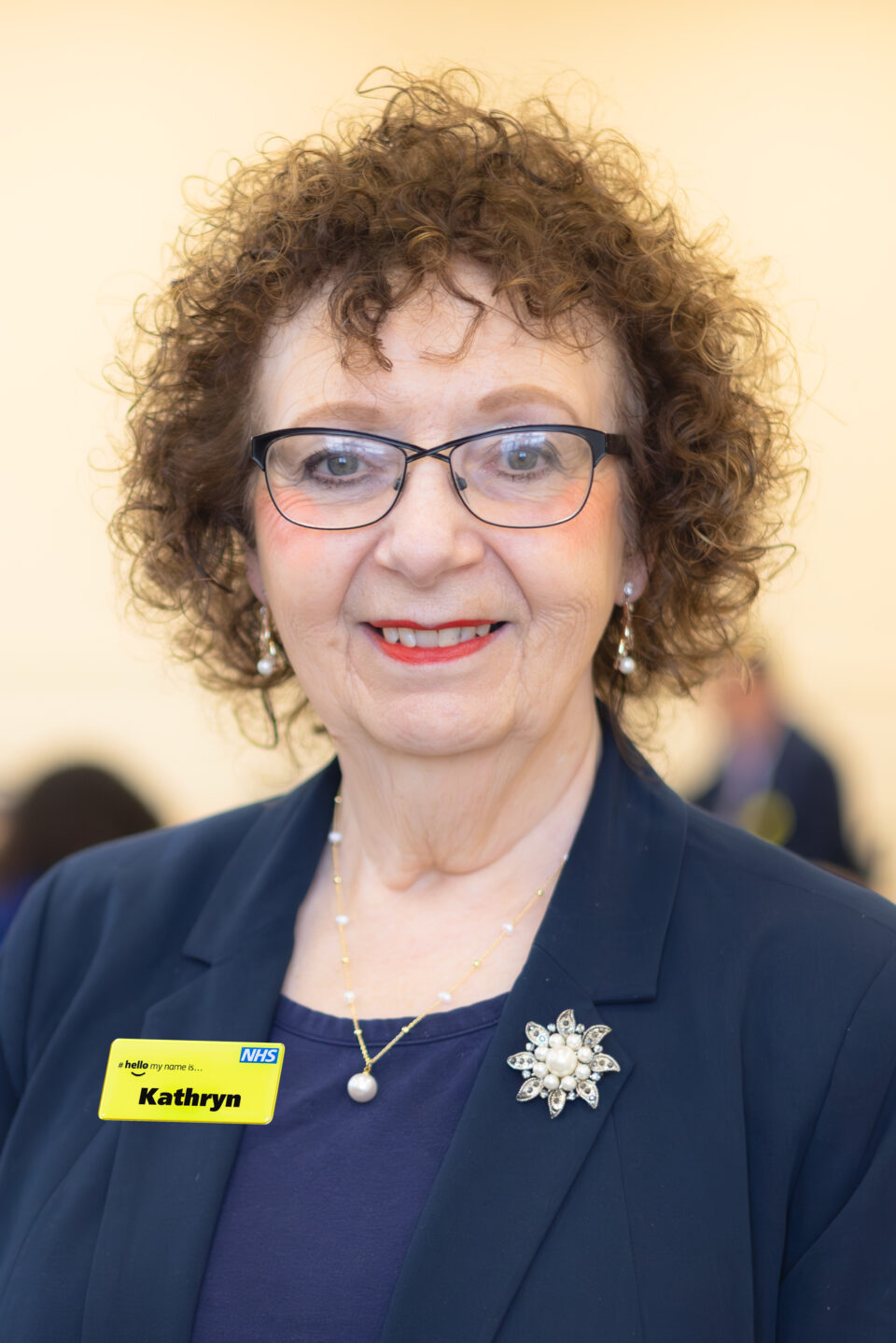
If you’ve a story to tell let our Communications team know.
- Email: rdash.rdashcommunications@nhs.net
- X (formally Twitter) (opens in new window)
- Facebook (opens in new window)
- Instagram (opens in new window)
- YouTube (opens in new window)
Get vaccinated, get winter strong
We have launched Project 3000 and, are on a mission, to get at least 3000 colleagues vaccinated as quickly as possible before the flu virus starts to impact on our communities.
Flu cases are starting to rise, and it is crucial to get your flu vaccination at your earliest opportunity to protect yourself and those around you.
Respiratory viruses, such as flu, usually reach their peak over the festive and new year period. Nobody wants to miss out on the festive celebrations with their friends and family this winter and the vaccines provide the best possible protection.
The flu vaccine reduces the risk of severe illness and helps keep our communities healthy.
Who is most at risk?
People in older age groups, young children, pregnant women and those with certain long-term health conditions are most at risk of getting seriously ill with flu.
Pregnant or breastfeeding mums: If you are pregnant or breastfeeding, you should have the flu vaccine to help protect you and your baby. The flu virus can be serious during pregnancy for both mum and baby. Flu infection increases the chances of pregnant women and their babies needing intensive care. It can be serious for unborn and new born babies and can lead to premature birth, low birth weight, stillbirth or even death in the first weeks of life. Pregnant women also have a higher chance of developing complications if they get flu, particularly in the later stages of pregnancy.
Women who have had the flu vaccine while pregnant also pass some protection on to their babies, which lasts for the first few months of their lives when they are particularly at risk from flu. Studies show that flu vaccines can be safely and effectively administered during all stages of pregnancy for both mother and baby.
Young children aged under five years old: Kids under the age of five years have one of the highest rates of hospital admissions due to flu. During the 2022 to 2023 season over 6,000 under-fives in England were hospitalised by flu. The vaccine will stop your child getting very ill with flu and aid a speedy recovery.
Those with certain long-term health conditions:
- people with liver disease are 48 times more likely to die from flu
- if you are immunosuppressed, you are 47 times more likely to die from flu
- those with a neurological disease, are 40 times more likely to die from flu
- people with kidney disease, are 19 times more likely to die from flu
- those with heart disease are 11 times more likely to die from flu
- those with respiratory disease are 7 times more likely to die from flu
- those with diabetes are 6 times more likely to die from flu
You can get your flu vaccine in the following ways:
- contact your flu vaccinators who are vaccinating colleagues in your services and teams, take a look at the list of your flu vaccinators
- let your flu vaccinator know of any team meetings you have where they can attend to vaccinate colleagues.
- flu vaccinators will be at key trust meetings and events offering the vaccine to those present.
- you can book your vaccine via the RDaSH staff portal on the intranet, enter your login details as you would for your laptop or computer, then go to “online booking” and select “flu vaccination 2024”, then choose your preferred appointment
We know that not all of you are able to get onto the staff portal, especially colleagues who work in estates and facilities, so planned clinic sessions will be shared with your line managers to share with you all. They will also be available in your work bases.
Thank you, Glyn, for having your flu vaccine
Having your flu vaccine is the best way to protect yourself and your loved ones from a very serious virus.
For some people with physical health issues like diabetes, sleep apnea, and asthma having their vaccine can be daunting.
This is why People Focused Group member Glyn Butcher sought the support of our colleagues at our recent leaders’ conference to help him to have his flu vaccine.
Glyn said: “The last time I had the flu vaccine was seven years ago, and I was poorly for about three weeks, and I had terrible psychosis. I have been really frightened and put it off.
“When Steve Forsyth, Chief Nurse, asked me to have my flu vaccine, I said “no” and came up with lots of reasons why I couldn’t. He realised I was struggling and gave me support, so that we could have the flu vaccine together.
“What changed my mind is the trusted relationship I have with Steve and his kindness towards me when I told him my fears and concerns. His deep understanding of my situation as a carer and as a user of services helped me to have my flu vaccine.
“I feel very proud for having the vaccine and facing my fears. I want to encourage everyone to have their flu vaccine. And because I had mine, my partner has now booked hers. Thank you.”
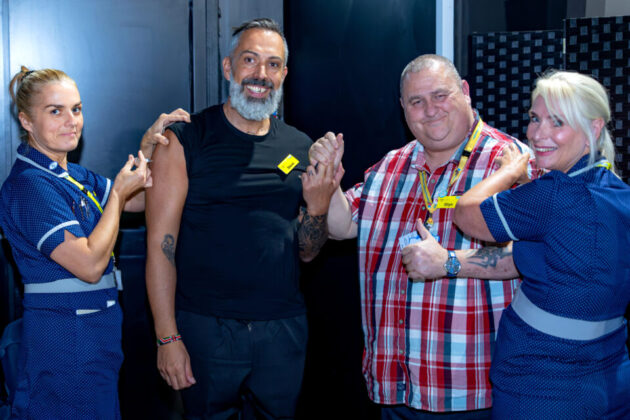
2003 colleagues vaccinated
Since starting our flu vaccination campaign on 16 September 2024 our vaccinators have managed to administer the flu vaccine to 2,003 colleagues.
A massive thank you to everyone who has had their vaccine and to our great team of vaccinators and those behind the scenes for going above and beyond their day jobs to deliver and administer the vaccines.
Watch our flu vaccine video (opens in new window).
Calling all flu vaccinators
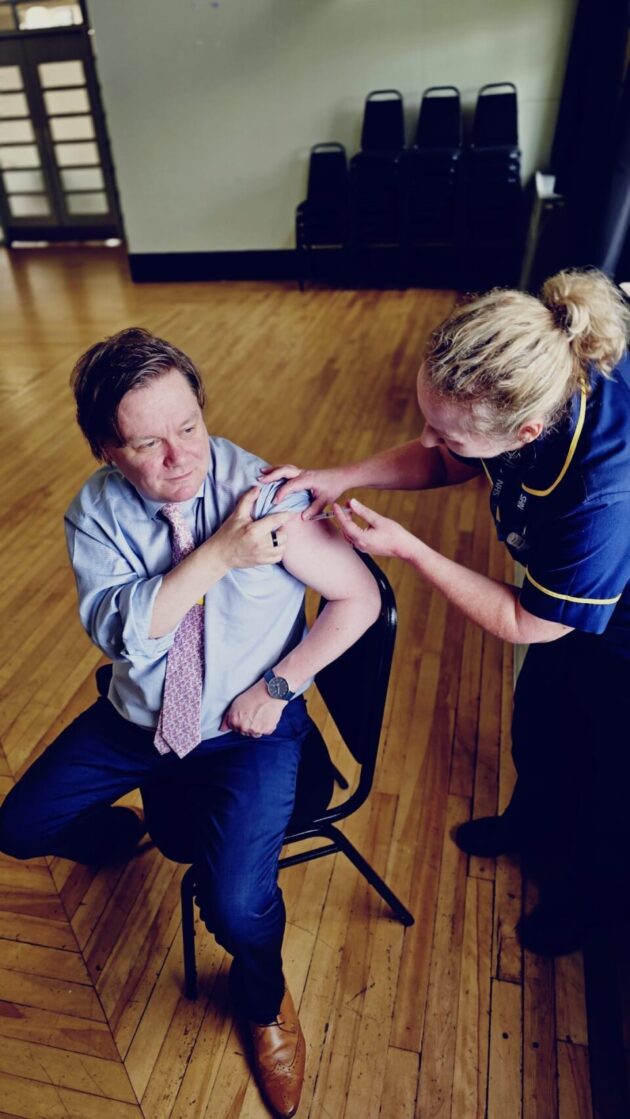
We have the following cash prizes as a special thank you for going above and beyond and giving your time to vaccinate trust colleagues. First prize for vaccinating the most colleagues is £75, second prize is £50, and third prize is £25.
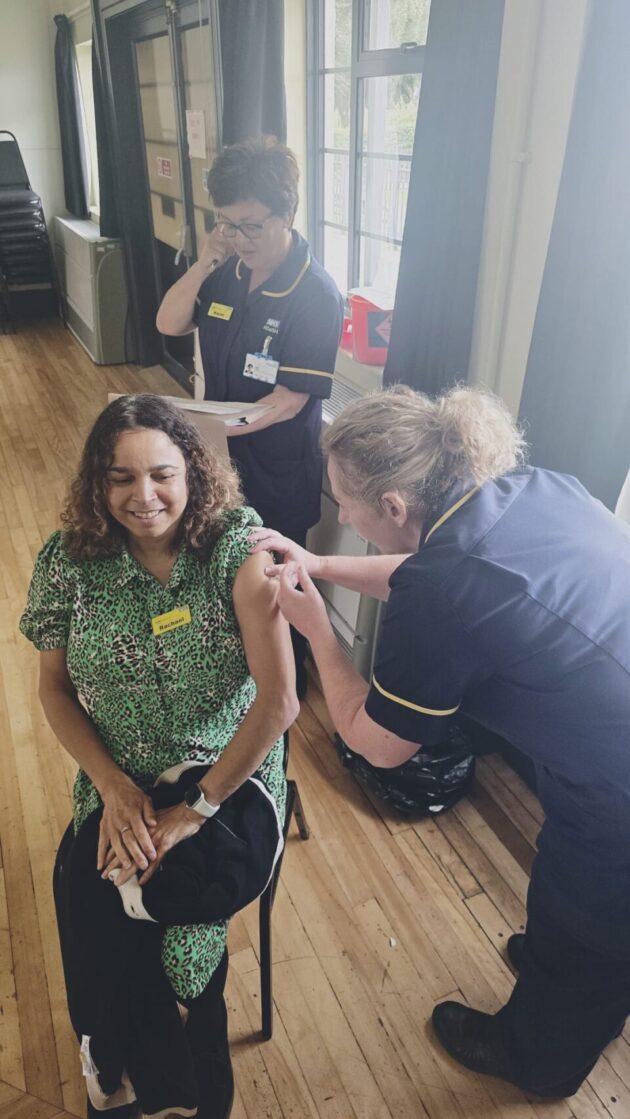
Busting the flu myths
Watch our chaplaincy flu fighter video (opens in new window).
Here in this video, Russ Westfield, Chaplain; Sam Butcher, Nurse Director Physical Health and Neurodiversity Care Group; and Hassan Jamil, Head of Chaplaincy and Spiritual Care; bust some of the most common myths surrounding flu and the vaccine.
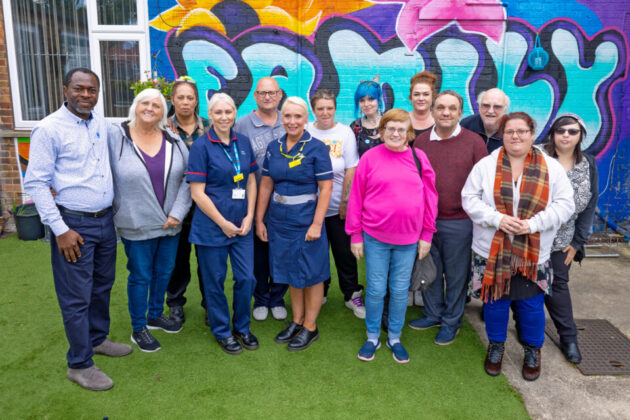
Keep up to date with the facts and don’t be swayed by the myths.
Our new ways of thanking you
Going into 2025 we are changing the ways we say thank you inside the trust.
The changes will mean that more people can get involved. That recognition happens closer to local teams and directorates, and that our approach is directly linked to the six values that the trust has had for a very long time.
It does mean we say thank you, and goodbye, to the Diamond and GEM awards.
But we are now, past COVID, bringing back long service awards, bigger and grander than ever.
There will be loads more about the new approach in December’s Trust Matters, but here are the headlines.
Local thank yous: we have launched an electronic card template and printable version for you to use to send a thank you, either electronically or to print off and post to colleagues.
Our six group rewards (five care groups and our backbone directorates): local leaders have developed their own bespoke ways to recognise colleagues who do something special or go over and above. These range from thank you cards to events. You’ll find out more via your own care group and directorate. Each one is slightly different, and we hope that this makes the thank you more personal. We will explain everyone’s approaches in the next edition.
New trust wide awards: our shining star awards will be three times in the year and will recognise exceptional success, linked to our six values. Nominations will come in from our 23 directorates, with Chair Kathryn Lavery, and our Lead Governor Jo Cox, selecting the award winners.
RDaSH Annual Awards: you can see from other articles in Trust Matters that this is getting bigger and better each year, the 15 awards remain. It is only six months until we ask you to nominate again…
Our Long Service Awards will be relaunched: an in-person ceremony will celebrate those reaching a decade or more of service. A chance to recognise you and your guest at 20, 30, 40 or 50 years. The financial reward is increased too. The next ceremony takes place in May 2025.
Kathryn Lavery, our Chair, explains: “Colleagues work hard, and sometimes exceptional contributions can go unnoticed. We want to make sure that acts of kindness get a fast thank you from those who notice them. And that we recognise people who contribute locally and who live our values.
“I hope that the move to recognise exceptional service, with nominations from across the trust, and from our patients and partners, makes a difference. Please continue to wear with pride your GEMs lanyards or use your Diamond mug.
“Refreshing our approach to thank you, to celebrate, and reward reflects the organisation evolving. We are a big place, and we need to make sure your local successes can be celebrated as they happen! I want local managers to be doing just that. The board will contribute through the shining star values awards, and of course the annual awards. Toby and I look forward to the long service awards restarting, and to recognising the dedication that they mark.
New induction programme starts
We are excited to announce our new format for the trust induction. How is it different you ask?
- Takes place over five days.
- Face-to-face delivery.
- Community based.
- Contains interactive question and answer sessions led by the experts in our services and communities.
- A roving programme which occurs in each locality every three months North Lincolnshire, Rotherham and Doncaster.
- Information is shared in advance with our new colleagues to stimulate their thinking.
- Structure of the programme builds awareness and relationships.
- Inducts colleagues into the trust, our strategy, our promises, our communities and not just their role.
- Forms an integral part of our recruitment and retention offer ensuring our colleagues understand how our strategy and promises are different to other NHS employers and our community alignment, nurturing the power of our communities.
Here is the new format of our induction.
Introduction to our communities and working within our trust
Day 1
- Practicals of joining us and working here.
- Lunch with staff networks, freedom to speak up guardian, trade unions and Spiritual Care team.
- Understanding communities we work with.
Day 2
- Making sense of our objectives and promises (1 to 17).
Day 3
- Local induction into your directorate (corporate or clinical).
- Meet the Leadership team.
- Understand what matters around here.
Day 4
- Getting ahead on mandatory training that is needed to undertake your new role, including Oliver McGowan part 1.
Day 5
- Reflection, thinking through what these new RDaSHians have heard so far.
- Lunch with care group directors and executive group.
- Co-creating support for your first 100 days and year wit us (including Carlene’s quiz).
Your Hearts and Minds charity launches
We are relaunching our new-look RDaSH charity “Your Hearts and Minds” on October 30.
The future strategy of our charity aligns with the RDaSH clinical and organisational strategy, which focuses on working with and nurturing the power in our communities.
Pauline Vickers, Chair of Our Hearts and Mind Charity and RDaSH Executive Director said: “We’re delighted to be launching Your Hearts and Minds!
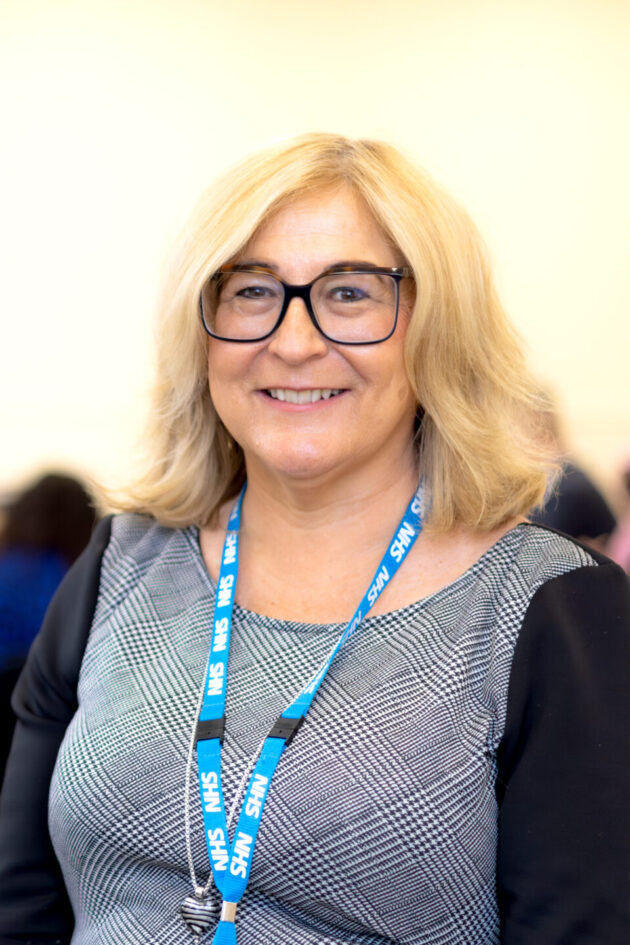 “The main aim of our charity is to support activities, projects, education and research which go above and beyond normal NHS funding to improve the care and experience of patients.
“The main aim of our charity is to support activities, projects, education and research which go above and beyond normal NHS funding to improve the care and experience of patients.
“This offers an exciting opportunity to work with our local communities and partners to raise funds to improve health care in North Lincolnshire and South Yorkshire, support our staff in delivering high quality healthcare and work more closely with community groups and voluntary organisations.”
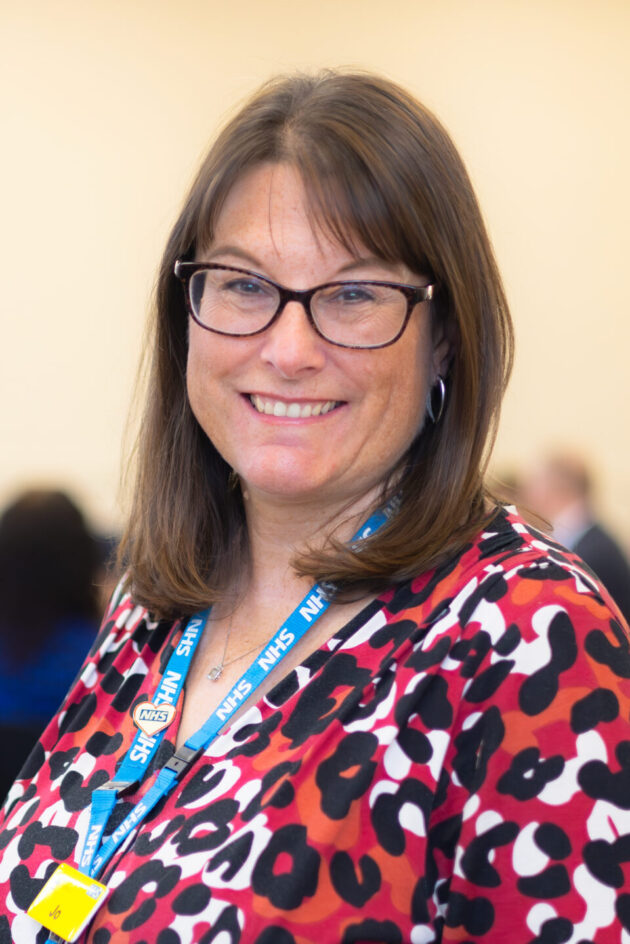 RDaSH Director of Strategic Development Jo McDonough said: “Your Hearts and Minds is not just about raising funds but spending money on our priorities. We’ll be inviting bids for the charitable funds from teams and individuals within RDaSH jointly with local community and voluntary organisations. This means we can join forces with communities in designing and funding improvement in care for our patients and their carers.”
RDaSH Director of Strategic Development Jo McDonough said: “Your Hearts and Minds is not just about raising funds but spending money on our priorities. We’ll be inviting bids for the charitable funds from teams and individuals within RDaSH jointly with local community and voluntary organisations. This means we can join forces with communities in designing and funding improvement in care for our patients and their carers.”
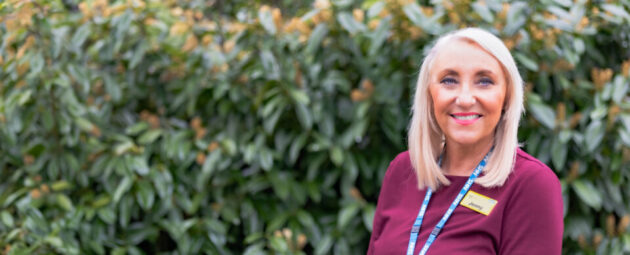 Your Hearts and Minds Fundraising Manager Jenny Baynham said: “Our fundraising team will be working hard in the coming months to raise awareness of our charitable activities both within RDaSH and in the wider community and we’ll be going out and about across our services to provide information and advice to colleagues to ensure everyone knows how to get involved, and we welcome any invitations to staff meetings or trust buildings.”
Your Hearts and Minds Fundraising Manager Jenny Baynham said: “Our fundraising team will be working hard in the coming months to raise awareness of our charitable activities both within RDaSH and in the wider community and we’ll be going out and about across our services to provide information and advice to colleagues to ensure everyone knows how to get involved, and we welcome any invitations to staff meetings or trust buildings.”
We have five clearly defined funding priorities
A good start (children and young people)
We’ll be working towards raising funds to invest in programmes and support that focus on children’s learning and development, social skills and physical development to help children under the age of five to get ready to start school.
Our best self (mental wellbeing of patients and staff)
We aim to support the work of the trust to ensure that all services, both inpatient and community are Autism Friendly. Improving physical environments and ensuring all our staff are suitably trained in how to care for people with Autism.
We’ll also use our charitable funding in projects and activities which help us to look after the welfare and wellbeing of our staff. We know that staff who feel supported and cared for deliver high quality care to our patients.
Trust research
Research not only benefits our patients and the wider health community, but it also helps the organisation attract skilled clinicians to work with us.
Research funding through our charity will kickstart new fellowships, and in time senior lecturer and professorial units, helping us to attract the best talent locally. We are also committed to working with our communities on community-led research.
Our likely research focus over the coming years will be in several key areas:
- dementia care
- neurodiversity including ADHD
- the use of virtual technology to improve self-care and treatments we offer
- wider determinants of health, building on our strengths in nutrition
Education and learning
We know that continuous learning is vital to the ongoing delivery of high-quality care to our patients. We have ambitious plans to raise funds to build and develop an Education and Learning Centre, which could include state-of-the-art education methods such as simulation suites and training on new technology such as artificial intelligence.
We want to share this facility and resource with partners and the wider community to support local groups and forums for those with lived experience to not only use its resources but help design it and deliver training and education in it.
A good death (end of life care)
Many people think first and foremost of hospice care in relation to end of life, which is a key part of the service we offer. St John’s Hospice in Doncaster has been a vital part of the community for over 30 years and the trust has fundraised, long with the Cancer Detection Trust to develop the gardens, environment and complementary therapy services we offer to patients and families during their last weeks and days.
The Doncaster community holds our hospice brand close to their hearts and regularly raise funds for us, which we want to continue.
We also use our charitable funds to supplement the support our specialist and community teams provide to patients and families in their own homes, and we aim to expand the use of our funds to support dementia patients requiring end of life care, whether they are in their own home, or a care home setting and will work closely with our partners in the voluntary sector to support this.
Want to get involved? We already have several fundraising events and activities planned for the festive season!
- Light up a life.
- Christmas jumper dash.
- Christmas raffle.
Rainbow network spooky social
We will be relaunching the previously known LGBTQ network to the RDaSH Rainbow Network on 29 October at a spooky social.
Come along and meet the new co-chairs Vikki Mitchell and Laura Wiltshire. Everyone is welcome members of the community, allies, to the event at Almond Tree Court.

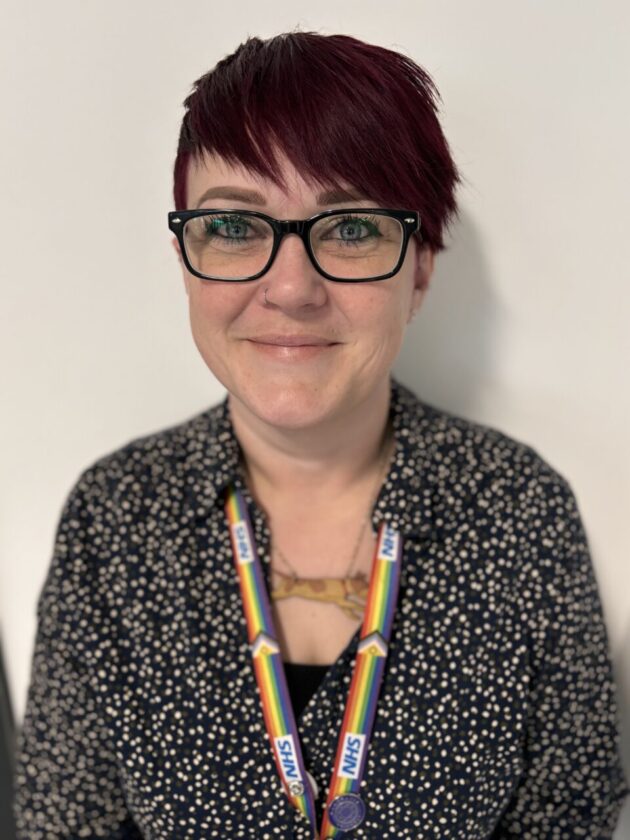
Spooky snacks, socialising and a quiz will be on offer as a way of providing a safe, supportive space for the LGBTQ+ community. There will also be the opportunity for colleagues to share what they want from the network, and from the co-chairs over the next 12 months. Your views will shape the future of the network allowing it to grow into what you need.
The co-chairs will be linking up with the network at Doncaster and Bassetlaw Teaching Hospitals (along with other system organisations), with the aim of organising some joint Doncaster wide events or meet ups over the next year. We will also be looking at what events there are across the whole trust and how the network can support them.
We have Trans Day of Remembrance coming up on 20 November and we will be demonstrating our support for our trans community on that day. Thank you to everyone who comes along to our spooky social. Whether you are part of our community, or a colleague who wants to show your support to our organisation being a safe space for the rainbow community, we look forward to sharing some pictures of our relaunch event soon.
Our meetings will be a mix of MS Teams and face to face. We recognise that colleagues all over the trust struggle to get to a specific site and teams gives us more flexible attendance. Equally, we value the power of face to face connection and will bring you both.
The next date for your diary will be in December. There will be no Rainbow network meetings in November due to the staff networks’ AGM. We will share the date of our December meeting soon and we are planning to hold our January meeting in Rotherham. Hope to see you at our meetings.
Inclusion networks annual meeting
Join us as we celebrate our amazing inclusion networks on Wednesday 13 November between 9:30am and 2pm, at Glanford Park, Jack Brownsword Way, Scunthorpe DN15 8TD.
Our networks are:
- a great way to engage and support our people
- a forum for colleagues to talk about their experiences especially those who belong to protected characteristic groups
- an opportunity to gain insight into barriers, challenges and devise solutions to help improve the experiences of colleagues, offer peer support and a listening ear
The authentic self is the soul made visible. We invite you to bring your authentic self to our day of celebration. Whether that means a sari, kilt, your comfiest shoes or your everyday wear, we look forward to welcoming you all.
To register your attendance at this in person event, visit our page on Eventbrite (opens in new window) to get tickets.
Like more information? Please email rdash.equalityanddiversity@nhs.net
Happy Diwali
Diwali the Hindu festival, which is commonly known as the festival of lights, is celebrated from Thursday 31 October to Friday 1 November.
As well as symbolising the spiritual victory of light over darkness, good over evil and knowledge over ignorance, Diwali is often associated with Lakshmi, the goddess of prosperity.
Those celebrating the festival will decorate their homes with lights and rangolis, elaborate patterns made out of materials including rice, coloured sand and flowers.
There are usually big celebrations in big towns and cities across the world, where there will be fireworks, light displays, dancing and food.
“Wishing you a Diwali that brings happiness, prosperity and joy to you and all your family.”
Learning half days
With two trust wide learning half days under our belts and the third just around the corner, we hope that you are finding this learning time useful.
Our learning half days are time set aside for learning. You can catch up with your mandatory training, come together as a team or service to learn something that you just didn’t have time for before, or to join a trust wide training or webinar.
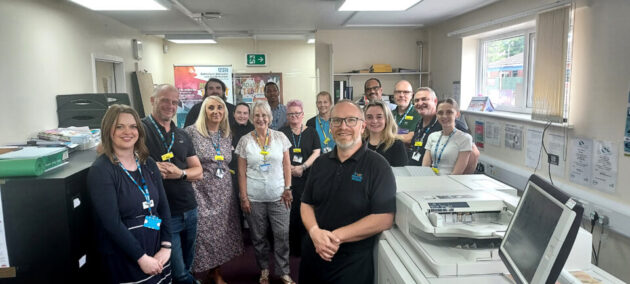
The choice is yours, but it must be for learning.
Your future learning half days are:
- Wednesday 6 November from 1pm to 5pm
- Thursday 12 December from 1pm to 5pm
- Friday 24 January from 9am to 1pm
- Thursday 13 February from 9am to 1pm
- Wednesday 26 March from 1pm to 5pm
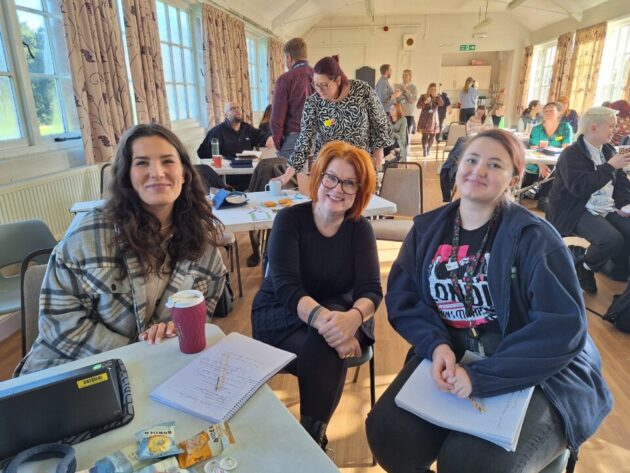
Children’s teams winning against the best in the country
We know our Children’s teams are fantastic, but they scooped two national awards from the Nursing Times during October.
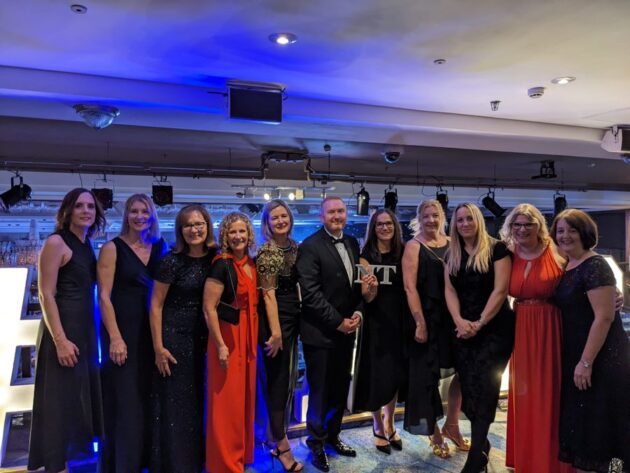 Huge congratulations to those involved.
Huge congratulations to those involved.
Public health nursing
Sheffield Children’s NHS Foundation Trust and Rotherham Doncaster and South Humber NHS Foundation Trust 0 to 19 research network, a two-year project.
This pioneering initiative was developed to address the need for specialist community public health nurses (SCPHNs) to deliver, lead and participate in research, for the benefit of babies, children, young people, and families. Previously, SCPHNs felt they and their communities were underrepresented in research engagement. As a result, the two trusts wanted to support opportunities for children, young people, and families to be recruited onto studies and have their voices heard. Among other outcomes, the project has seen the development of six research champions in Yorkshire and Humber, and their respective local communities of research practice.
Ann Shuttleworth Rising Star Award
Elaine Blow
Elaine is a paediatric nurse, working in a neurodevelopment service, who has lived experience of autism and attention deficit hyperactivity disorder. She has demonstrated huge passion, determination, and clinical expertise to devise and develop her role as a neurodiversity support practitioner.
She has developed her role from scratch and works hard to deliver a service that is evidence based, follows national guidance and syncs with assessment pathways. Her role helps to support a huge gap in service provision, both for pre- and post-diagnostic support. She is integral to it and has been instrumental in improving the patient journey and experience. Many partner agencies and other services seek her expertise on engaging and working with neuro-divergent children and young people.
Have your say in the NHS staff survey
The NHS Staff Survey will be closing very soon on November 29.
This is your chance to help make our trust a workplace in which our colleagues have a healthy work and life balance, feel safe, respected and fulfilled. We want to be a place where people seek to work, where they feel a sense of pride and in which everyone thrives. We are committed to making this happen but need your help to give your views by doing the NHS Staff Survey. It is only by speaking out that we can collectively create change. So far, 40.80% of you have filled in your survey.
All your responses remain completely anonymous. Your completed survey goes back to the independent survey provider (IQVIA) which collate the information on behalf of the trust.
As a thank you for doing your survey, you will have the chance to be entered into a prize draw, to win up to £500. Winners are picked weekly at random by IQVA and your name will be shared with the trust so that we can give you your prize. There are five prizes of £500 and 10 prizes of £50 up for grabs. We will also be giving out a hamper to the team in each directorate with the highest response rates.
- 4 November, 1 prize of £500 and 1 prize of £50
- 11 November, 1 prize of £50
- 18 November, 1 prize of £500 and 1 prize of £50
- 25 November, 1 prize of £50
- 2 December (after survey ends), 1 prize of £500 and 1 prize of £50
We’re working hard to be an anti-racist organisation
As a trust we are clear on our values and we will not accept nor tolerate racist behaviour, but this does not remove the distress our colleagues have experienced.
We are determined that we will further amplify our work on our promise 26 to make a positive difference.
The detailed work associated with the promise is being taken forward through the people and teams sub-group of the clinical leadership executive (CLE). As a reminder, the promise is not only related to racism. The wording covers all forms of discrimination, and the trust’s commitment to address and fight it.
The trust recognises that racism is endemic in wider society, but that does not mean that we are powerless to act, nor that we should tolerate behaviours inconsistent with our constant values.
So what action are we taking?
- We are tackling unacceptable behaviour, including racism, from our patients and relatives and this is supported with the launch of our acceptable behaviour policy which went live on October 1.
- Active bystander training will form part of the leadership development offer for our most “senior” 150 staff, which goes live from January 2025. This will be further enhanced by the first line managers induction programme which also launched this month. Our mantra being, “if you walk by it, you stand by it” and this is not an acceptable approach for any colleague, especially our managers.
- The new five-day induction started this month. This too will include space for new RDaSHians to explore their expectations, and ours. This will include discussions about bystander behaviours and how we can work together to set clear expectations for how we respond, including to microaggressions.
- Organisational training modules will remain available to all staff. The Learning Half Days provide an additional place through which teams can learn and discuss exclusion and inclusion.
- We will have reverse mentors in each of our CLE sub-groups, as we look to ensure diversity within those ten groups. This approach is not from all excluded groups: it is intentionally drawn from employees from global majority backgrounds.
- We will aim to achieve credible accreditation against frameworks of inclusion for all excluded protected characteristics, starting with those reflecting a global majority.
- We are reviewing all our recruitment practices, which will include the inclusion of a global majority colleague as part of the recruitment process.
- Talent management of our global majority colleagues to further enhance the promotional opportunities.
Carlene Holden, Executive Director of People and Organisational Development, said: “Also the effort to give higher priority to our REACH network, and other networks, as part of the Trust People Council, speaks to a similar emphasis. As does work supporting internationally educated colleagues.
“All of which will improve the working experiences of our colleagues and our communities.”
Anyone wanting more information about our work to tackle racism should contact Carlene by emailing carlene.holden@nhs.net.
Promise 26
Become an anti-racist organisation by 2025, as part of a wider commitment to fighting discrimination and positively promoting inclusion.
North Lincolnshire
Suicide prevention day and chaplaincy
Tuesday 10 September was World Suicide Prevention Day. In North Lincolnshire a vigil preceded by a walk of hope is held each year in the town centre. For the previous two years Chaplain Rev Russ Westfield has spoken at the event.

This year the vigil was held in the 20 to 21 Visual Arts Centre which includes the beautiful St John’s Church, a local landmark. Those in attendance were able to browse displays and hear introductions from organisations such as Samaritans, One For The Lads, Andy’s Man’s Club and the Bearded Fisherman each of which provides valuable and specialist services for those contemplating suicide.
Local choir called The Baths Hall Collective performed an emotive set of songs and two bereaved family members shared their personal account of losing a child to suicide. Farzana Khanum, Public Health Manager for Wellbeing and Suicide Prevention, hosted the event and reaffirmed the council’s commitment to changing the narrative on suicide.
Rev Russ, who is based at Great Oaks and has been a local church pastor for 25 years shared words of comfort and a prayer before introducing the lighting of candles and two minutes silence. Russ, who is also a professional composer and musician wrote an orchestral piece for the event called Time to Heal and this was played during the lighting of the candles.
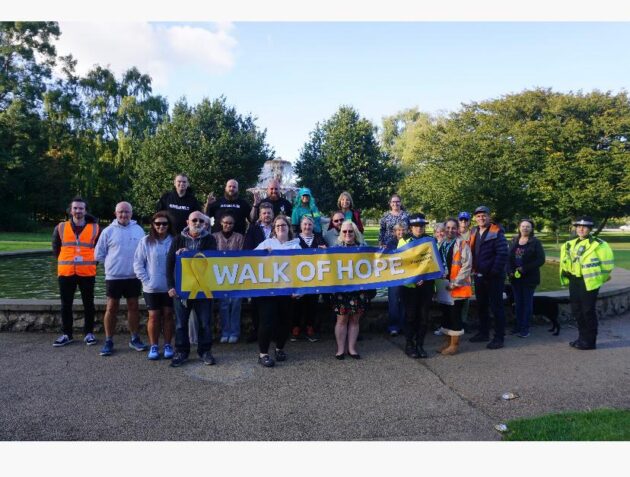
Shining example of how apprenticeships provide career opportunities
Congratulations to Lindsey Taylor, newly qualified staff nurse on Mulberry Ward at Great Oaks, for scooping the Public Service Apprentice of the Year award at the East Yorkshire apprenticeship awards.
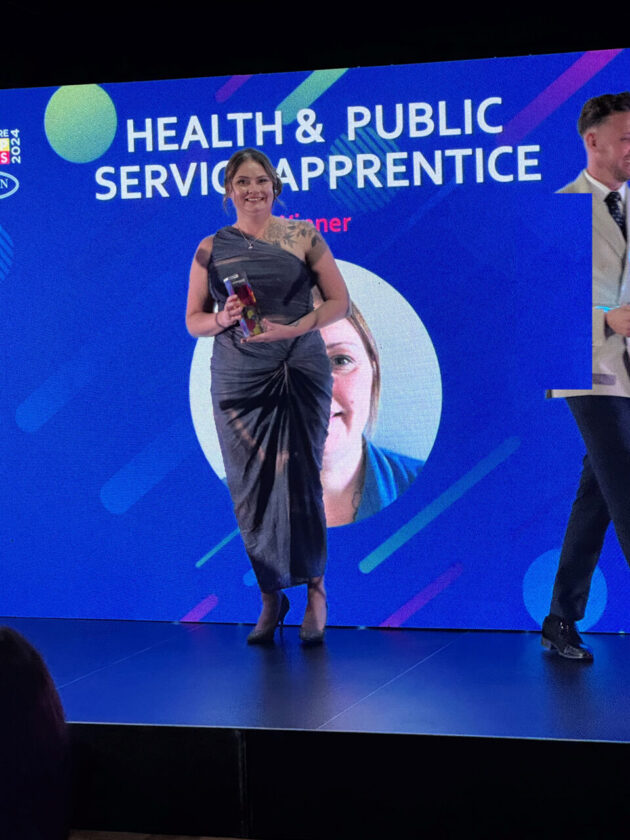 Lindsey first started with us in 2005 as a healthcare assistant working in both adult and older adult mental health services. A busy working mum who never found the opportunities in her early years to progress into higher education.
Lindsey first started with us in 2005 as a healthcare assistant working in both adult and older adult mental health services. A busy working mum who never found the opportunities in her early years to progress into higher education.
This was until, in 2019 she was offered an opportunity to apply for the nursing associate apprenticeship. She didn’t have her Maths and English certificates, so studied these to gain entry to the apprenticeship. Passing both and her apprenticeship in 2021. She went on to achieve a 2.1 and registered nurse status in 2023, then moving quickly into a permanent nurse post on Mulberry Ward.
Promise 24
Expand and improve our educational offer at undergraduate and postgraduate level, as part of supporting existing and new roles within services and teams while delivering the NHS Long Term Workforce Plan.
Congratulations Vicky
Well done to Vicky Sinclair, who has passed her non-medical prescriber qualification.
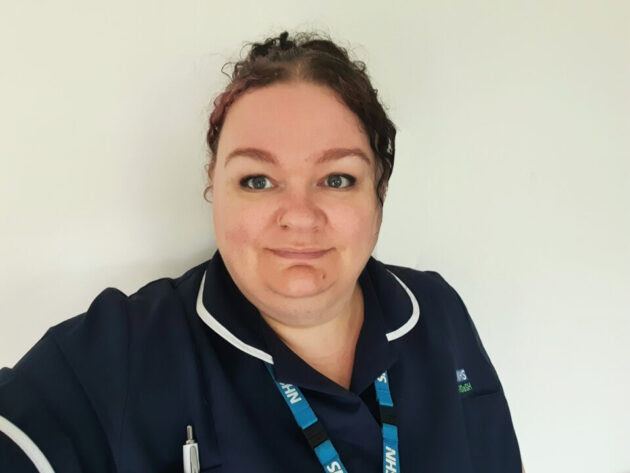 This means, Vicky is the first learning disability non-medical prescriber in the North Lincolnshire community learning disability team. It also means that she will support the pathway for stopping over medication of people with a learning disability, autism or both (STOMP) and improve care for people with learning disabilities.
This means, Vicky is the first learning disability non-medical prescriber in the North Lincolnshire community learning disability team. It also means that she will support the pathway for stopping over medication of people with a learning disability, autism or both (STOMP) and improve care for people with learning disabilities.
Investment funds
In 2024 to 2025 we have made cuts of £6.5m. But we have invested almost £5m in neurodiversity quality of care, and in investment funds proposals of £3m. The following pages highlight some of the brilliant projects that the clinical leadership executive agreed to fund.
In January and February 2025 we will do that again, prioritising bids that focus on our promises in 2025 and 2026. The bid launches on November 29 and closes on January 10. Announcements will be made after the board meets in March.
IV pathway helping patients to stay out of hospital
Following a successful pilot, we have invested to create an Intravenous (IV) pathway in the Unplanned Nursing team.
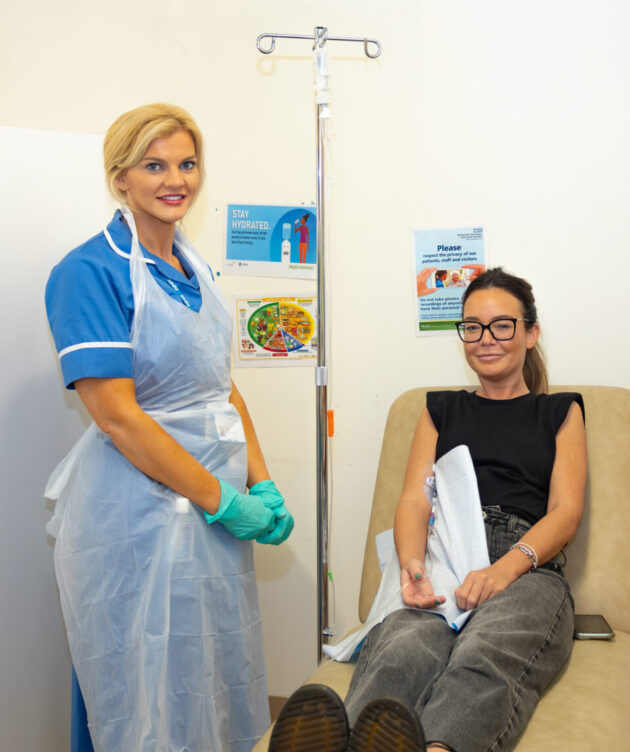
The IV service will be seven days a week and provided in two ways:
- a clinic, in a chair based service, to provide IV treatment to patients who can travel to the Tickhill Road site
- IV treatment for housebound patients in their own home
Referrals are being taken from both the primary and secondary care and added to the virtual ward caseload. Patients will be managed across community nursing and virtual ward. The pilot of the IV clinic project showed some impressive results and meant some people who may have ended up in hospital for treatment didn’t need to and could stay at home.
From September 2023 to February 2024 of the 58 patients supported:
- 52 referred from Doncaster Royal Infirmary or the ambulance service
- 30 supported by the virtual ward
- 32 needed more than one per day of IV treatment, likely to been admitted to hospital if we didn’t provide the service: This came to around 635 days, or 90 weeks, or each person being supported for almost three weeks on average
- 26 needed one treatment per day: Which came to around 652 days, or 90 weeks, or each person being supported for over three weeks on average
The IV pathway strives to maximise wellbeing, improve health outcomes and patient experience while supporting people at home, preventing hospital admissions. The pilot shows that the IV pathway will provide a vital service for GPs and specialist teams to provide IV treatment to patients in the community, rather than in hospital.
This investment contributes to Promise 13 where people can be treated on a home first basis, receive a good quality of care and not having to be admitted to hospital unnecessarily.
Positive feedback
- Timed appointments went well as opposed to not knowing what time the nurses would visit. No delays and would use again. Very grateful to the staff and service.
- The option to attend the clinic room means patient can manage his day around his appointment. The use of the clinic room is the preferred option and would be used again if required.
Supporting people with complex emotional needs
We have invested in a sustainable and equitable specialist model of care for working age and older people with complex emotional needs (CEN).
Based on good practice in the country, the proposed model will increase staffing at place, with staff who are embedded in community mental health teams (CMHT). It will also create supportive networks across the trust.
This model will ensure that clients with CEN have access to psychological interventions and care alongside generalist treatments in the CMHT, structured clinical management (SCM)
Investing in this pathway will increase treatment choice for patients with CEN, fewer hospital stays and less long-term use of services. Ultimately improving patient outcomes, experience and economic benefit.
For older people, there is emerging evidence for the treatment of CEN, with new recommendations on the importance of adapting treatment protocols to take account of age-related complexity. For example, the investment means we have a full programme dialectical behaviour therapy (DBT) offer in Doncaster. DBT is a type of psychotherapy which works to support patients to create a life worth living to them. It aims to teach people how to live in the moment, develop healthy ways to cope with stress, regulate their emotions, and improve their relationships with others.
A patient receiving DBT said: “After 12 years of struggling with addiction and self-destructive behaviours, DBT has given me the tools to pause, manage my emotions, and respond differently to life’s challenges. My therapist’s advice to create a life worth living, shifted my perspective, allowing me to set healthy boundaries, discover my self-worth, and finally let go of the fear of losing others. Now, I feel more in control and more at peace with who I am.”
This investment will help meet promise 14 as more people with complex emotional needs being treated and waiting times falling.
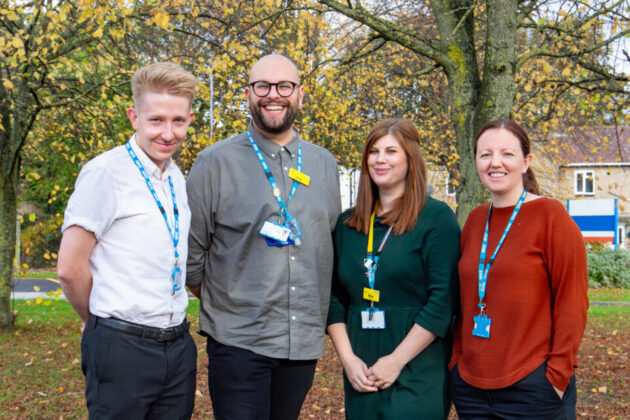
Using virtual reality for therapy
After trialling virtual reality (VR) in our children’s services, we have invested to make this technology more available.
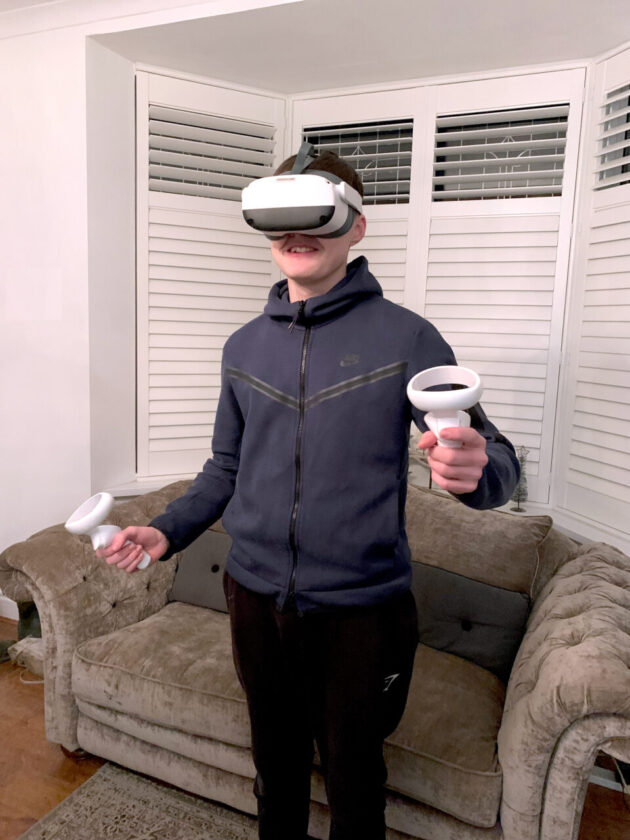 The “relax in VR technology-driven therapy” is aimed at providing therapeutic support, specifically addressing anxiety-related issues.
The “relax in VR technology-driven therapy” is aimed at providing therapeutic support, specifically addressing anxiety-related issues.
- The programme uses VR technology to create immersive and interactive virtual environments.
- Unlike traditional therapy sessions that are scheduled in advance, VR is available on-demand making it flexible and adaptable to people’s schedules and needs.
- The equipment is linked remotely to a trained practitioner in real-time, creating a digital persona of the person. While the user is experiencing the virtual environment, a practitioner is monitoring their progress and engagement. The practitioner can provide guidance, support, and interventions if necessary, making the experience more interactive and therapeutic.
- The therapy is personalised to the needs of the user. The practitioner uses the data collected from the wearable device to gain insights into the user’s progress and emotional state throughout the session.
The use and expansion of VR will go hand in hand with research to understand its effectiveness. VR will continue to be used in children’s services and we will look to its use in some adult services.
This investment will help us meet promise 16 by using technology so we can improve outcomes by reducing waiting times for therapy to help people manage their anxiety.
Peer support for young people moving to adult services
We have invested in additional peer support in our children and young people’s mental health services (CAMHS).
This peer support will help to bridge the gap between children’s mental health services and adult services, ensuring an improved transition.
Alternatively, those young people who are not transitioning to adult services but are preparing for adulthood and independence will receive support to navigate the world using the skills and strategies they have developed during their CAMHS interventions. The implementation of peer support workers in CAMHS will help children and young people to re-define help as part of their learning and growing process as a step towards independence.
The lived experience perspective provided by peer support workers lets our young people see their potential and that having difficulties around mental health is not wholly limiting.
We already have a peer support role for young people in Rotherham, and with this investment we will be able to support young people in Doncaster and North Lincolnshire too.
This investment will help us meet promise 1 as we will have peer support in all our three places to help adolescents continue their treatment and eventually be discharged when they are ready.

Giving patients more control over their treatment and recovery
To help with care planning and giving patients more control over their treatment and recovery, and the outcomes they want to achieve, we are introducing Dialog+ on our IT system.
This will give patients more control over their care plan. It will transform the way we work together across our communities in providing care to people with severe mental health. To help with the roll-out of Dialog+ and the patient rated outcome measures, we have put aside investment in training.
The training for successful implementation will involve trust colleagues and partners including primary care, social care, voluntary and community sector enterprises, and people with lived experience. Together with the training will be a package of resources to support sustainability. The reason for this approach is based on learning from other trusts and systems which have implemented Dialog+.
This investment is an example of promise 4 as services will meet the needs of what people tell us are important to them for their support and recovery. It also helps us achieve promise 16 as we can work with others to meet people’s needs.
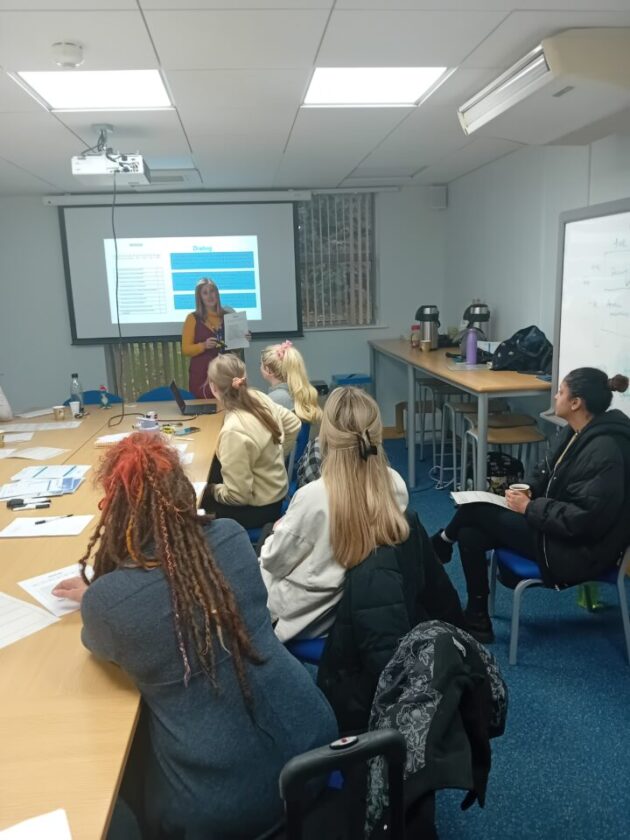
Doncaster mental health peer support
We have invested in introducing a Community Peer Support Hub for Doncaster specialist community mental health services (including crisis, adult and older adult CMHTs), drawing on the model successfully introduced in the Doncaster Primary Care Mental Health Hubs.
We will be working with the voluntary sector to help us develop and deliver a front door model which puts peer engagement at the heart of the care pathway. The peer support workers will use their lived experience and local knowledge to support and enable people to access and engage with community services by:
- supporting people to engage with community activities, considering if adjustments are needed or if additional support is required
- assessing a person’s motivation to engage with activities and how the activity fits with achieving their goals
- being familiar with local resources and assets available in the community
- communicating with the person regularly, adapting support to align with their preferred contact methods
- encouraging people to become holders of their own information particularly of their care plans, exploring how to meet the person’s needs in a collaborative relationship
- supporting people with accessing support, for example housing, benefits and employment support and knowing where people can get specialist advice
- providing community advocacy on behalf of the person and supporting access and treatment for people from diverse and deprived communities
In addition, we will pilot the introduction of initial “welcome conversations” which will be undertaken by peer support workers to help people access and engage with their communities and our services if needed.
People will feel that their support is being co-ordinated in one place. Their clinical care will be provided by practitioners and community support by the peer support workers. This joint support approach will be seamless and address the needs of the whole person.
This investment will help us meet promise 1 with people’s clinical care being provided by practitioners and community support by peer support workers. People will feel that their support is being co-ordinated in one place. This joint support approach will be seamless and addresses the needs of the whole person and give help with practical matters, leisure activities, and friendships.
Mental health peer support for people in North Lincolnshire
We will create a peer support hub led by the voluntary sector, linked to primary care networks, and integrated with our trust.
This will introduce an asset-based model of peer support in North Lincolnshire that sustains and improves access to mental health services and support for those that need them. The hub will deliver a co-ordinated approach to prevention, moving towards a more rounded, person-centred approach. It will help to make sure there is “no wrong door” for people experiencing mental health problems.
The hub will provide a “one-stop shop” for professionals and mental health peer support groups. This offer will increase connections with community activity and networks of support to reduce pressure on community mental health services.
There will also be an annual community fund targeted towards grassroots organisations and activity. This would support the development of activities and interventions, help groups to be sustainable, and enable better health outcomes for people.
- The hub will support the work being done locally to improve health outcomes, including people from diverse, deprived, and rural communities.
- Peer support workers will each have their own skills, knowledge and lived experience. People will be allocated to the peers based on the best fit for the person, enabling them to establish a rapport, build trust and support people to engage with their community and services.
- The peer support workers will provide brief interventions and use their experience and local knowledge to navigate and support people and their carers to engage with local services and their communities.
- It will support people to get the right care, in the right place at the right time.
This investment will help us meet promise 1 with people being supported by peers. We will measure the success through the feedback from people, if we are meeting their needs to help with their support and recovery. The investment also helps support more people with a severe mental illness receive their health checks and follow-up action (promise 7).
Supporting people in North Lincolnshire whose mental health is at risk
We have invested in the early intervention psychosis (EIP) service to offer an at-risk mental state (ARMS) pathway to help “level up” with other places we work in.
ARMS will work with young people and adults aged between 14 and 35 years old for up to one year. The service helps to prevent or delay the development of a first episode of psychosis. If left untreated, psychosis can cause significant distress and impairment for patients and families. EIP and ARMS services aim to promote recovery and prevent people from requiring expensive secondary care services. At the very least, these services support patients and families to reach personal milestones such as completing education. ARMS services support people with all aspects of their lives including mental wellbeing, social functioning, employment, and general quality of life. EIP and ARMS services promote personal and clinical recovery for patients and families. For every £1 invested into EIP, £14 is saved by the NHS and partner agencies by reduced healthcare and service utilisation.
We had an ARMS pathway for people in Rotherham and Doncaster, we will now have one for people in North Lincolnshire. The service has recruited three new clinicians and will offer treatment from November 2024.
This investment will help us meet Promise 16, improving outcomes with more people in North Lincolnshire whose mental health is at risk being assessed and support sooner.
eClinics
We have invested to create eClinics for adult mental health services in Rotherham.
RDaSH eClinics are an app-based alternative to face-to-face or telephone appointments which can be booked and conducted at a time that is most suitable to the patient.
 Appointments are via the app in a written message format within an allocated appointment slot that in future will be booked by the person. The key aim is to provide an alternative digital option to access care and information in a streamlined and convenient way. This was originally developed for RDaSH within children’s care group and is supported in school nursing, school based mental health services, health visiting, young persons’ sexual health services and NHS Talking Therapies.
Appointments are via the app in a written message format within an allocated appointment slot that in future will be booked by the person. The key aim is to provide an alternative digital option to access care and information in a streamlined and convenient way. This was originally developed for RDaSH within children’s care group and is supported in school nursing, school based mental health services, health visiting, young persons’ sexual health services and NHS Talking Therapies.
The introduction of the eClinic model as part of the new Rotherham Primary Care Integrated Mental Health Hubs would enable service users to utilise technology that many are already familiar with, empower people to be able to choose and manage their own appointments and provide more choice and convenience. We will start with planned appointments, and eventually move where people can book appointments themselves.
Professionals will be able to offer support to more service users across a smaller time frame, document clinical consultation into patient record, plan appointments around staffing and availability. This will help reduce inappropriate referrals, support early intervention and prevention.
eClinics offer a much more efficient and streamlined alternative to face-to-face contacts, but not a replacement. The increased efficiency results in services having an increased capacity to conduct more appointments in a day, reach a wider number of people and therefore reduce or prevent increased costs.
More support for older adults
We have looked at the service we offer people with dementia and, or older adults with severe mental health problems, and are investing in additional capacity to support these people.
 This will help with timely diagnosis and evidence based therapeutic interventions. It will address health inequalities in our diagnostic and therapeutic offer which have a real impact on older adults accessing services and their subsequent outcomes.
This will help with timely diagnosis and evidence based therapeutic interventions. It will address health inequalities in our diagnostic and therapeutic offer which have a real impact on older adults accessing services and their subsequent outcomes.
This investment will help us meet promise 13 as more older adults with severe mental health problems or dementia will be treated in the community and can live at home.
Other investments we are making
- Additional capacity so we can support working with others on high-risk domestic abuse cases (MARAC).
- To help with research around health data, through the Akrivia platform.
- Community clinical coding of diagnoses in our community teams, giving us significantly improved insights into the needs of our communities.
- A fund to pay people involved in public and patient Involvement and engagement (PPIE) research activity.
- Capacity to co-ordinate the Oliver McGowan autism and learning disability mandatory training programme.
- Software to make sure our website meets accessible standards, especially for people with cognitive and physical disabilities.
- Software to make monitoring of domestic cleaning more efficient.
- Better meet the communication preferences of our membership.
- Changes to make Amber lodge more autism friendly.
- A co-production and trauma informed care project in the learning disabilities service.
- Increased administration support for two of our care groups.
- The introduction of eClinics in adult mental health services.
- Strengthening our post incident response (PIR).
Staff awards
We had an amazing 345 entries for this year’s RDaSH Awards.
Thank you to everyone who submitted nominations to recognise colleagues, teams and services, which have made incredible contributions to our work, exemplifying our values and making a massive difference in the past year.
The judging panels have met and made their decisions. The winners will be announced at our awards ceremony on Friday 22 November at Doncaster Racecourse.
Here are the shortlisted colleagues and teams in the running for an award.
Quality and safety
- Kanmani Balaji, Learning Disabilities team, North Lincolnshire.
- Home First Physiotherapy team, Doncaster.
- Light Jachike, acute adult mental health, North Lincolnshire.
- Victoria Sinclair, Community learning disability team, North Lincolnshire.
- Specialist Continence Service, Doncaster.
Equity and inclusion
- Jemma Hall and Lottie Weinberg, Talking Therapies, Rotherham, North Lincolnshire and Doncaster.
- Leesa McManus, Health Visiting team, Doncaster.
- Viral Hepatitis team, Doncaster.
- With Me In Mind, Rotherham and Doncaster and North Lincolnshire.
Learning and education
- Vicky Gallagher-Carr, 0 to 5 Health Visiting Service, Doncaster
- Dr Gemma Graham, Older People’s Mental Health, Rotherham
- Rebecca Knapton, Health Action team, Doncaster
- Sheree Powell-Richardson, Talking Therapies team, Doncaster
Research and innovation
- Jenny Gravestock, Talking Therapies, North Lincolnshire
- Health Visiting and School Nursing teams, North Lincolnshire and Doncaster
- Dr Sasha Priddy, Pip Harder, Riann Parr, Gareth Roberts, Jasmine Rose, Maria Filip, Isobel Dunning, and Elsa Barron, Acute Adult Mental Health team, Rotherham
- Anna Sapey, Foot Protection team, Doncaster
Living our values
- Leesa McManus, Health Visiting team, Doncaster
- Jane Ogley, 0 to 19 (special education needs and disability) health and wellbeing, North Lincolnshire
- Race, Ethnicity and Cultural Heritage (REaCH) network, Rotherham, North Lincolnshire and Doncaster
- Richard Smith, St John’s Hospice, Doncaster
Nurturing the power in our communities exemplar
- Kathryn Bebb, Community and long-term conditions, Doncaster
- Kathryn Donnelly, Julija Teiland, David Gravel, and Shawni Lynam, Senior Employment Advisors, Rotherham, Doncaster and North Lincolnshire
- With Me in Mind, North Lincolnshire
- Louisa Redhead, Continuous Service Improvement, North Lincolnshire
Equality diversity and inclusion champion
- Rachel Evans, With Me In Mind, Rotherham
- Michelle Heaversedge, With Me In Mind, Rotherham
- Selina Khunkhuna, Talking Therapies, Rotherham, Doncaster and North Lincolnshire
- Shirley Kirkland, Equality Diversity and Inclusion team, Rotherham, Doncaster and North Lincolnshire
- Sallyanne Paton, Memory and Assessment team, North Lincolnshire
Volunteer of the year
- Laura Cox, Patient Experience and Involvement team, People Focused Group, Doncaster
- Pippa Harder, Patient Experience and Involvement, Rotherham
- Volunteer drivers, St John’s Day Therapy Unit, Doncaster
- Helen Ward, Equality Diversity and Inclusion, and Organisational Development teams, Doncaster
Peer support worker of the year
- Louise Darling, Health Action team, Doncaster
- Antony Hudson, Child and Adolescent Mental Health service, Rotherham
- Nathan Lindley, Sophie Hill, Deborah Bishop, and Tracey McClarence, People Focused Group, Doncaster
- Sharon Pederson, Patient Involvement team, People Focus Group, Rotherham, Doncaster and North Lincolnshire
Colleague of the year clinical
- Kerry Aston, Acute Adult Mental Health team, Rotherham
- Marie Bailey, Crisis team, Rotherham
- Angela Dunnachie, Speech and Language therapy team, North Lincolnshire
- Emma Seymour, Children’s Community Nurses, Doncaster
- Dr Tanuja Sinha, Early Intervention in Psychosis team, Doncaster
Colleague of the year backbone
- Richard Clare, Health informatics, Doncaster
- Branko Cupkovic, People and Organisational Development, Doncaster
- Jacqui Lefley, Triumvirate, North Lincolnshire
- Enioluwada Oluwajoba, Children’s Engagement and Participation, North Lincolnshire
- Scott Sykes, Finance and procurement, Rotherham
Leader of the year
- Sally Blackett, Acute Adult Mental Health, Rotherham
- Catherine Jones, Perinatal team, Rotherham and Doncaster
- Shirley Kirkland, People and organisational development team, Rotherham, Doncaster and North Lincolnshire
- Samantha Rooksby, Children’s Long-Term Conditions, Doncaster
- Tracey Wheeler, Foot Protection team, Doncaster
Backbone team of the year
- International Recruitment team, Rotherham, Doncaster and North Lincolnshire
- Information Systems Development (Web), Communications, Change and Improvement teams, Rotherham, Doncaster and North Lincolnshire
- Safeguarding team, Rotherham, Doncaster and North Lincolnshire
- Single Point Access team, Doncaster
Team of the year adult clinical care
- Community Tuberculosis Nursing service, Doncaster
- Diamond Activity and Therapeutic service, Doncaster
- Early Intervention in Psychosis team, Rotherham
- Early Intervention in Psychosis team, North Lincolnshire
- Long COVID team Doncaster
- Memory Service, Rotherham
Team of the year children's clinical care
- Children’s Community Nursing team, Doncaster
- Parent Infant Emotional Wellbeing team, North Lincolnshire
- With Me In Mind, North Lincolnshire
Well done to everyone.
Celebrating our allied health professionals story
We held our first allied health professionals (AHPs) conference this month on October 16 with over 100 AHPs and support workers attending.
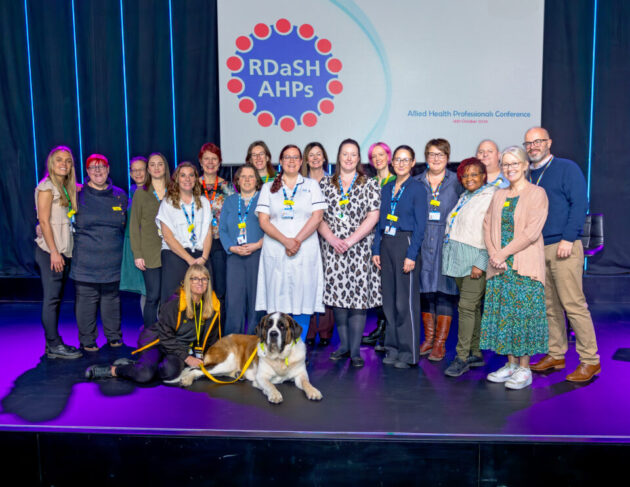 Delegates had the opportunity to network and share areas of best practice with their peers and listen to presentations which included addresses from national AHP leads in mental health and community care and advanced clinical practice.
Delegates had the opportunity to network and share areas of best practice with their peers and listen to presentations which included addresses from national AHP leads in mental health and community care and advanced clinical practice.
Jon Rouston, Chief Allied Health Professional, said: “This conference offers a platform to spotlight the remarkable impact AHPs have on the delivery of care. In our trust we have 250 AHP colleagues each playing a vital role in influencing patient care.”
Noma Makhanda, Lead Occupational Therapist and Deputy Chief Allied Health Professional, said: “We had a very informative day with presentations from Occupational Therapist Serena, including people with lived experience sharing their experiences of how AHP support has improved their lives.”
Gold award for Noma
Congratulations to Noma Makhanda, Lead Occupational Therapist and Deputy Chief Allied Health Professional, for being one of the first recipients of the Chief Allied Health Professions Officers Gold Award for Excellence 2024.
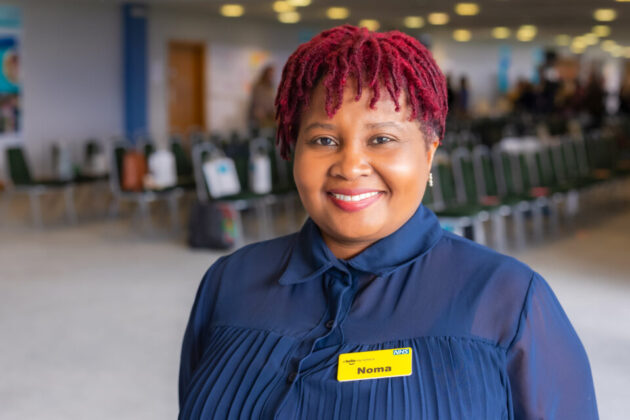 Noma was among 22 allied health professionals who received this award earlier this month. This award acknowledges and celebrates excellence for significant and exceptional work. For leading by example, demonstrating strong NHS values and high levels of commitment and quality in her role.
Noma was among 22 allied health professionals who received this award earlier this month. This award acknowledges and celebrates excellence for significant and exceptional work. For leading by example, demonstrating strong NHS values and high levels of commitment and quality in her role.
Well done, Noma!
Second leaders’ conference
Our top leaders’ cadre held the second RDaSH annual leaders’ conference, this time in the Magna Centre in Rotherham.
It was a working day with workshops on key patient safety and health inequalities issues, and exhibitions of quality improvement posters from across the organisation.
Toby Lewis, our Chief Executive, outlined the changes expected in the organisation over the coming year, and celebrated what has been achieved during 2024.
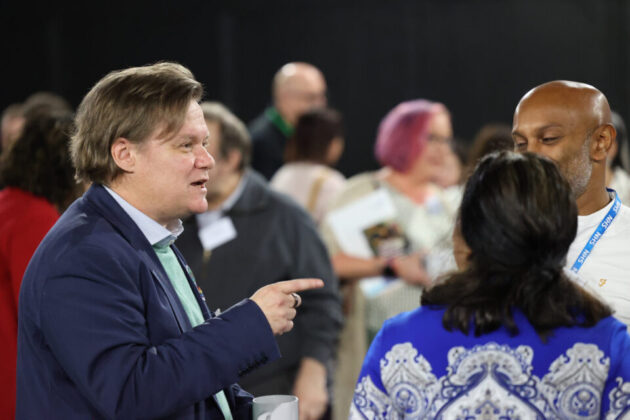 This included big reductions in child and adolescent mental health waiting times and to address ADHD diagnosis waits.
This included big reductions in child and adolescent mental health waiting times and to address ADHD diagnosis waits.
Professor Bola Owolabi, who leads for NHS England on health inequalities, and once undertook a vocational training scheme rotation into Swallownest, powerfully made the case to address inequalities and championed work on health checks for people with serious mental illness.
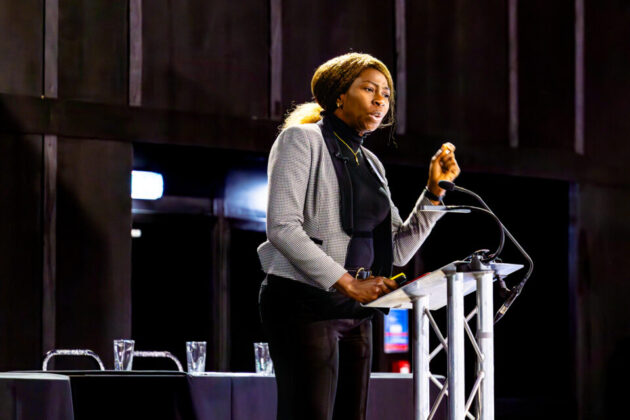 In 2025 the leaders’ conference (third time lucky) will rotate to Scunthorpe!
In 2025 the leaders’ conference (third time lucky) will rotate to Scunthorpe!
Rotherham
Trust clinician authors hoarding disorder clinical guidelines
A senior trust clinician has co-written and published new national guidelines for diagnosing a mental health disorder, which experts believe affects between 1.3 to 3 million people in the UK.
Dr Stephen Kellett has spent around 18 months working with colleagues on shaping the latest Good Practice Guidelines for identifying and treating Hoarding Disorder (HD).
Newly published by the British Psychological Society under the title “A Psychological Perspective on Hoarding”, this detailed information resource has been designed to be a practical and “go to” reference point for clinicians, family members and carers.
Dr Kellett drafted the definitive guidelines after refreshing the previous first edition, by adding learning and insights from new research concerning the diagnosis and treatment of HD, speaking to service users and consulting with professionals in terms of what they would find useful and informative. In working with colleagues, he has produced and easy to use and easy to read guide.
Dr Kellett, a Consultant Clinical Psychologist, working on Goldcrest and Sandpiper wards at Rotherham’s Swallownest Court and the trust’s clinical director of psychological therapies research at Grounded Research, said: “For many years hoarding was viewed as a rarely presenting variant of obsessive compulsive disorder (OCD), before it was recognised as having its own diagnostic status. Hoarding is a mental health condition that is notoriously difficult to treat, with high rates of dropout and also relapse. So, these new guidelines offer practical advice for clinicians on how to work effectively with hoarding disorder and additionally offer support patients and carers.”
Service evaluation findings showcased at top psychology conference
Having access to a clinical psychologist’s input is improving outcomes for inpatients on the Rotherham inpatient wards, according to new service evaluation evidence showcased at a top health conference.
Access to a clinical psychologist is not routinely provided on psychiatric wards across the country but at Rotherham’s Swallownest Court, where a clinical psychologist is allocated to each ward, patients are clearly reaping the benefits.
Assistant Psychologist Isobel Dunning presented the outcomes of this service evaluation at the British Association for Behaviour and Cognitive Psychotherapies’ 2024 Annual Conference in Manchester.
Consultant Clinical Psychologist Dr Stephen Kellett said: “Inpatient teams take a biopsychosocial approach. Importantly, psychologists can contribute to both the assessment and treatment of inpatients and often the psychological therapy is the most important aspect of their treatment and stay. Patients report that the input they receive adds real benefit to the MDT approach and that the insights and skills made and learnt are transferable to the community.
“The evaluation provides sound evidence that psychological input during an in-patient stay creates meaningful change which is personally significant and important to patients’ lives. Patients have told us that they do not believe the progress would have been made without this psychological input, which is both supportive to the patient and clinically effective. In summary, clinical psychology input is improving inpatient stays.”
Introducing the COMP006 clinical study
The COMP006 study is looking into a new treatment approach for people with treatment-resistant depression using an investigational medicine given with psychological support.
The study is suitable for people who have been diagnosed with major depression and are currently experiencing a recurrent or single episode of depression, but that have not responded to anti-depressant treatment.
You may be eligible to participate in a Compass Pathfinder study if you:
- are 18 years of age or older
- have been diagnosed with major depression (single or recurrent episodes)
- are experiencing treatment-resistant depression, defined as failing 2, 3 or 4 pharmacological treatments for your current episode of depression
- meet additional study criteria
The study, which will last up to 16 weeks, will compare the effectiveness of the active investigational medicine with a placebo, a substance that has no therapeutic effect, given with psychological support. Two thirds of the people in the study will receive the active investigational medicine and one third will receive placebo. If you join the study, neither you nor your study doctors will know which study treatment you are going to receive because the decision is made randomly by a computer and not revealed to anyone.
Participants will receive support from study clinicians to help them taper off any prohibited medications, including current anti-depressants. Participants will be asked to remain off prohibited medications for the duration of the study.
Reimbursement for reasonable, out-of-pocket expenses for travel and other expenses may be available to qualified individuals.
If you are interested in learning more about the COMP006 study, please contact the Grounded Research team for an informal chat at rdash.comp006@nhs.net. We will ask you some brief questions and provide additional information about the study.
Expressing an interest does not oblige you in any way to take part in the study. So please, do get in touch if you want to find out more.
Promise 28
Extend the scale and reach of our research work every year: creating partnerships with industry and universities that bring investment and employment to our local community.
Well done Kaitlin
Congratulations to Kaitlin Walsh, International Recruitment Programme Lead, for winning the Asian Professionals National Alliance Impactful Equality Diversity and Inclusion Champion award.
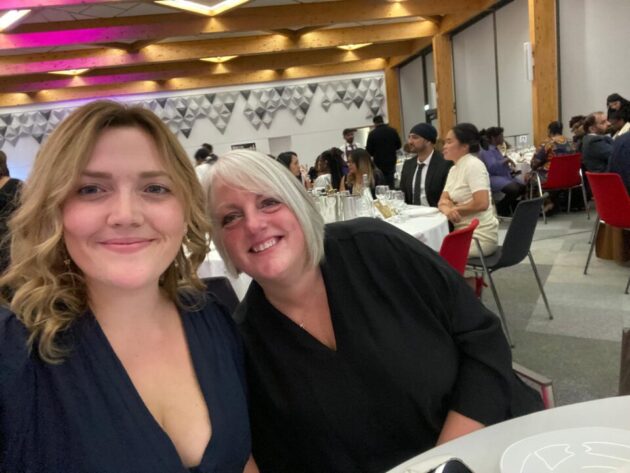
Katlin supports all our internationally educated colleagues, and this national recognition is testament to her work here at the trust.
Recovery games, celebrating recovery
This year’s Recovery Games went down a storm as we celebrated the achievements of people in recovery from drug and alcohol addiction. 36 teams comprising around 650 competitors came from across the UK traveling from as far as the Isle of Man to compete in this year event.
Mixing with the crowds were a squadron of everyone’s favourite Star Wars characters from the Mos Eisley Misfits professional cosplayers catching the attention of competitors, families and children alike.
Held on September 14, at the Hatfield Outdoor Activity Centre, hundreds of people joined the fun to watch teams going head-to-head in giant obstacle courses. There were live performances by Flip n Fill, and N Trance female vocalist Kelly Llorenna, who entertained the crowds. Other artist in recovery shared stories through their performances. The whole day being topped off with the spectacular colour festival.
The Recovery games give us all a chance to connect and celebrate that there is a way out of addiction and that recovery is possible through community inclusion, the reduction of stigma and the right support in place.
The winners were Wakefield Warriors, with the best themed team was Sober Social in Doncaster.
A massive thank you to the many event volunteers, sponsors, competitors and spectators for supporting the event and helping it be our best one yet.
If you would like to be involved with next year’s event? Please get in touch rdash.recovery-games@nhs.net.
Hope to see you all next year.
Health visitors who do research
Colleagues in our children’s care group recognise and value the role of nurses in research, which links with Promise 28.
This was highlighted when supporting Tracey Long, Nurse Consultant, to apply to become a National Institute for Health and Care Research Senior Research Leader for Nursing and Midwifery. Tracey was successful on this highly competitive programme and in April 2023 set local objectives to address ambitions in the chief nursing officer’s strategy for research
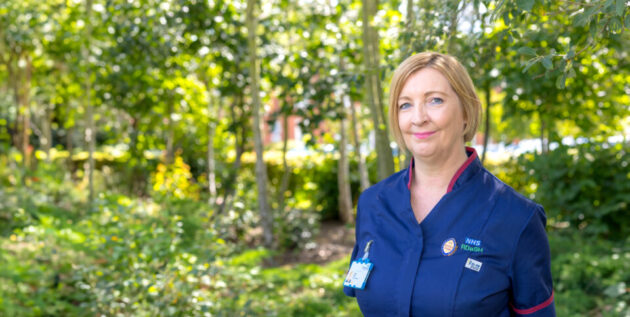 One objective for the care group was to continue to build a culture where nurses are empowered to integrate research into their practice. In September 2023, our trust became a site for the nationwide Surviving Crying study, a cluster randomised controlled trial of a service to support the mental health and coping of parents with excessively crying infants.
One objective for the care group was to continue to build a culture where nurses are empowered to integrate research into their practice. In September 2023, our trust became a site for the nationwide Surviving Crying study, a cluster randomised controlled trial of a service to support the mental health and coping of parents with excessively crying infants.
In partnership with the Grounded Research team, our health visiting teams in Doncaster and North Lincolnshire are taking part in this study. The health visiting workforce and administration team are involved in this study, which is crucial to its success. Alongside this, there are two additional roles, which are the cognitive behavioural therapy (CBT) trained health visitor role and the principal investigator role.
Cognitive behavioural therapy (CBT) trained health visitors
Health visitors in Doncaster and North Lincolnshire who expressed an interest in becoming CBT Health Visitors for Surviving Crying, were trained in May 2023 by the study team. Since then, Health Visitors Kate Tataryn, Sheryl Taylor, and Jacqueline Hobson, have been delivering the CBT interventions, with those parents and carers randomised by the study team.
Jacqueline said: “Being part of the Surviving Crying study has provided an excellent opportunity for health visitors to play an important role in research.”
Sheryl highlighted how: “Involvement in this study is raising the profile of health visitors in research, which is necessary for the future of the profession.”
Kate added: “As highly qualified nurses, it has been such an important opportunity to use the research theory we gained at university and put this into practice.”
Principal investigator
The principal investigator is the person with the overall responsibility for the study at RDaSH. For Surviving Crying this role is being done by Tracey Long and supported by Paul Stanley, a Research Nurse at Grounded Research. Paul is an experienced study delivery lead and the sub principal investigator for Surviving Crying.
Tracey said: “Having extensive prior knowledge as a health visitor I have observed how research is not necessarily written with this profession in mind. The Surviving Crying study is an excellent example of ‘close to practice research’, and research aligning closely with practice. Being the principal investigator is a privilege. I have observed our health visiting teams, supported by admin, play an active role in research, important for building research capacity and capability. It is always great to work in partnership with the Grounded Research team, and working with them on this study is no exception.”
Thank you to the chief investigator.
The chief investigator for Surviving Crying is Professor Jayne Brown. Jayne is a Professor of Health Care Professions at Nottingham Trent University. Jayne has supported the health visiting workforce to successfully deliver the study and has championed health visitors as a profession.
Jayne said “This study aims to test an intervention designed to support parents of excessively crying babies. Why is this research important? Excessive crying can lead to premature termination of breastfeeding, increased parental depression and anxiety, unnecessary searches for physical causes, poor parent-child bonding, increased use of NHS and social services, and, in extreme cases, infant abuse.
I am delighted to collaborate with RDaSH Doncaster and North Lincolnshire Health Visiting teams and Grounded Research on this significant study. It not only provides crucial support to parents but also advances health visiting practices by incorporating cognitive behavioural therapy. This early intervention promotes patient self-management and reduces unnecessary secondary care referrals.
The Surviving Crying team at RDaSH has been outstanding, serving as excellent ambassadors for the trust and the health visiting profession and I feel privileged to work alongside them.”
Research matters
Health visitors matter for research and research matters for health visitors, but we need to do this in partnership with our communities.
If you are a parent or carer of an excessively crying baby, in Doncaster or North Lincolnshire this study could be for you. Please discuss with your Health Visiting team.
See England’s strategic plan for research (opens in new window).
Doncaster
Aspire Outreach team supporting people with complex needs
Between April and August 2024, the outreach team at Aspire Drug and Alcohol Service has successfully helped 74 people to access structured interventions, and supported a further 42 people who are now preparing to access structured interventions.
The team proactively engage and connect with people who are not able to access the services of Aspire through the usual routes.

Louise Braisby, Team Leader at Aspire Drug and Alcohol Services said: “These people will often have complex physical and or mental health issues which stops them from entering treatment services and other local community services.”
“The team works flexibly to complete a full assessment and plan a holistic care package, while building a therapeutic and trusting relationship. We have excellent working relationships with local agencies such as complex lives, the amber project and the centre city management team. All of which often come across people who have barriers preventing them from accessing services, whether this be homelessness or chaotic lifestyles.”
There are seamless referral pathways in place which can be a quick telephone call from another agency. The team attend the weekly multi-disciplinary team meetings at Changing Lives and accept referrals at this point.
The team can meet people away from the Aspire buildings and can complete assessments in a flexible and accommodating way, they also have a 2pm drop in appointment Monday to Friday at Prince’s House in Doncaster on Prince’s Street.
Promise 10
Be recognised by 2027 as an outstanding provider of inclusion health care, implementing NICE and NHSE guidance in full, in support of local GRT, sex workers, prisoners, people experiencing homelessness, and misusing substances, and forced migrants.
Patient feedback
Met some wonderful staff and patients on Hawthorne Ward at the end of last week during the peer led assessments. There was some really positive feedback given about the staff and in particular about Sharon, the activities coordinator who had a group of patients engrossed in a wordle activity. Really great fun. We were told that it’s a very caring ward with lots of smiley staff and that the food is lovely.
Trudy’s memory garden
A garden space has been created in memory of a dear colleague and friend Trudy Adram who sadly passed away from cancer earlier this year.
The admin colleagues in Doncaster Learning Disabilities created a courtyard garden where everyone who knew and loved Trudy could come together to share memories of a special lady.
Trudy who worked for the trust for nearly 25 years would spend the summer months in the courtyard putting the world to rights with her friends and colleagues. It was very fitting that they created this beautiful space to reflect, share memories and remember her.
The support and donations from colleagues at 2 Jubilee Close, the Health and Wellbeing team, Walled Garden staff and our Estates and Facilities team, made this garden a reality. A big thank you to everyone involved.
The garden was officially opened following a short speech of remembrance from our Matron, Rachael Deakin and ribbon cutting by Louise Blore, Admin Lead. Trudy’s family were also there to mark the occasion. Trudy’s grandson Lucas, who she doted on added his own little stamp to the garden by painting a personalised bird house and sun catcher.
We held a little tea party with a cake sale and sold raffle tickets raising £223.15 for St John’s Hospice who cared for Trudy in her final days.
Special mentions for their contributions, donations and hard work are to:
- Vicky Stocks, Admin
- Kathy Breadin, Admin
- Chloe Johnson, Admin
- Amie Manning, Admin
- Laura Whitfield, Health and Wellbeing
- Harvey and Mike, Estates and Facilities
- Andy Stringer, Estates and Facilities
- Paul O’Byrne, Head Gardener, Walled Garden
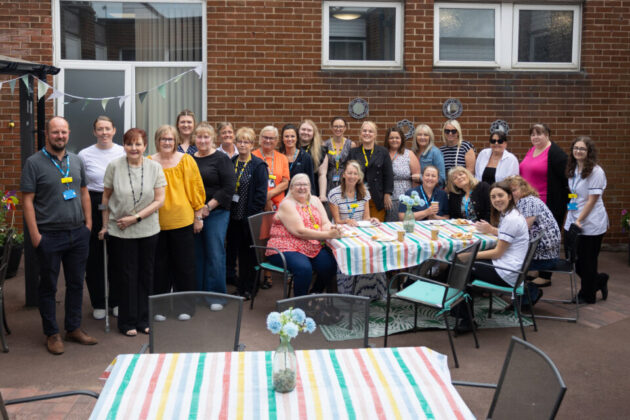
Fabulous feedback for our new doors
Our new doors are being installed on our wards, and they’re a bit of a hit!
This is a trust wide programme and will see new bathroom doors installed across all our inpatient units in North Lincolnshire, Rotherham and Doncaster. All will be done by Christmas.
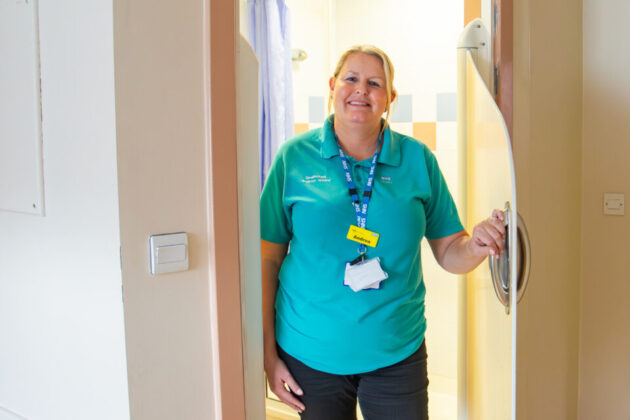
The new-look doors, pictured here, are now fitted to all bathrooms on our adult mental health wards across the trust. Now they’re being rolled out across our older adult mental health wards and going down a storm.
Sarah Benson, Matron in our Doncaster Adult Pathway, said:
- “Feedback from staff has been that the doors transform the bathrooms, they love them, while patients have said they prefer them over the old type of doors. They say they have more privacy and dignity.
- “Our staff say they are much better because they are so robust,” said Sarah.
One door has recently been fitted on Windermere Lodge in Doncaster to give staff a better idea of the benefits here’s just some of the fabulous feedback:
- “It feels more accessible for wheelchair.”
- “Considering our client group, I think it does ensure privacy and dignity.”
- “Staff can monitor patients on observations without infringing on privacy.”
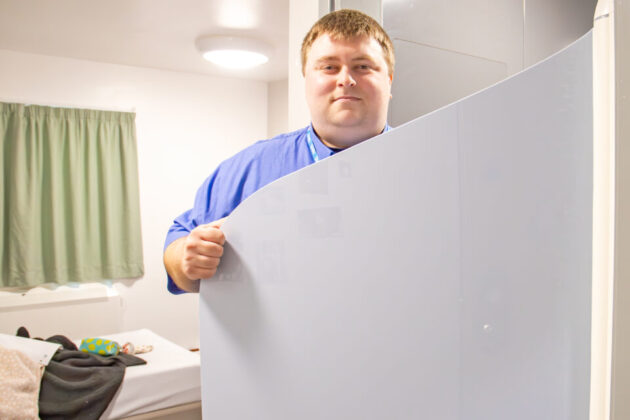
Muslim wellness conference
Hope and healing together.
Perks
- Presentations.
- Workshops.
- Great food.
- Conversation.
Raising awareness of difficult issues in an atmosphere of trust and mutual understanding, building resilience and strength, uniting and supporting through knowledge, acceptance and signposting.
- Date: Saturday, 23 November 2024 from 10am to 3pm.
- Venue: Eco-Power Stadium, Stadium Way, Doncaster, DN4 5JW.
Everyone is welcome. Ages over 16 only please due to nature of subjects to be discussed.
Going the extra mile
Well done to our Going the Extra Mile (GEM) award winners who have gone the extra mile for our patients, colleagues, and our services.
We held three events to celebrate our colleagues. The first event on September 13 was presented by Jo McDonough, Director of Strategic Development. With Richard Banks, Director of Informatics, presenting the GEM awards on October 22.
We have changed the way we reward and recognise great work.
See all pictures from the GEMs event (opens in new window).
Care opinion visit
Representatives from Care Opinion visited our Trust recently to talk to our governors about their product. They were super impressed how we have rolled Care Opinion out and how it feeds and supports promise 4.
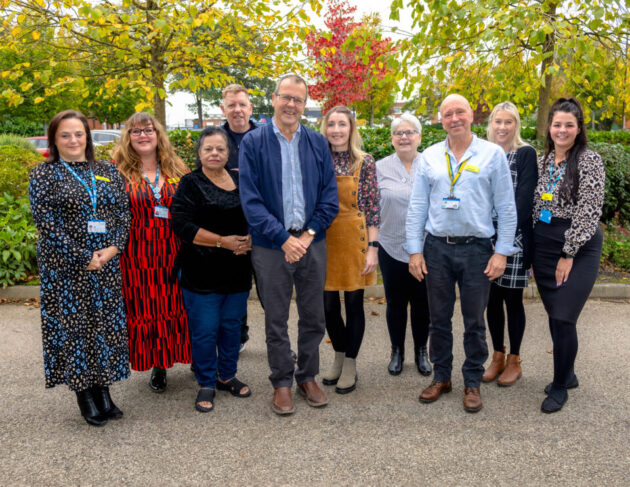
So, if you’re a patient reading this, please visit your feedback, concerns, suggestions and formal complaints (opens in new window)
80 years old and loving coming to work
The saying “find a job you like, and you’ll never work again” sums up a trust healthcare assistant to a tee.
June Stead started her NHS career in 1979 and 45 years later she’s still enjoying every day she works, at the tender age of 80.
 Age is no barrier to June, who was born the day before historic D Day in 1944 and currently works 15 hours each week for the specialist palliative care team based at Doncaster’s St John’s Hospice, providing enhanced care for very poorly patients in their own homes.
Age is no barrier to June, who was born the day before historic D Day in 1944 and currently works 15 hours each week for the specialist palliative care team based at Doncaster’s St John’s Hospice, providing enhanced care for very poorly patients in their own homes.
June, a mum and nana, started out in the Orthopaedic Department at Doncaster Royal Infirmary as a healthcare assistant and moved to the hospice 31 years ago in 1993.
June said: “I really enjoy going into a patient’s home and doing a good job, it is so rewarding. I don’t think I will ever lose that feeling.”
Line manager, Sarah Bell, paid tribute to June, saying: “She looks after people at the hardest time of their life with care, understanding and compassion. She always gives 100 per cent, not just caring for the patient but their family as well. The feedback we get about June is always so positive.”
A keen seamstress and shopper, in 2018 won the trust’s support worker of the year award.
The trust goes festive
Decorations competition for Christmas.
Departments and wards can now claim up to £40 towards the cost of decorations.
Four prizes are up for grabs for the best and most imaginative decorations. The judging elves may visit anytime between December 19 and 24. If you wish to enter the contest please email louise.wood23@nhs.net before 13 December.
We have three awards, plus the coveted RDaSH Christmas 2024 award for the overall winner. The categories are:
- Gold award, this will go to the most imaginary decorations, so get your thinking caps on and let your imagination go wild
- Frankincense award, this will go to the team or ward who have the best traditional Christmas decorations
- Myrrh award, this is for the most bizarre trimming up as long as you maintain a Christmas theme. You can either pay upfront for the decorations and then claim the money back via cash office or claim the money in advance and within 48 hours take the receipts to cash office along with the change
The easiest way is to be reimbursed via petty cash. Floats are located at Holly Lodge (Doncaster) open Tuesday and Thursday 9am to midday; Swallownest Court Reception, Woodlands Reception (both open 9am to 4pm Monday to Friday) and Great Oaks (ask for Lindsay Clague, Monday to Wednesday 8:30am to 4:30pm).
Flourish news
The honey pot
Beat the lunchtime rush and pickup delicious pies, pasties, fresh sandwiches, and a variety of hot and cold drinks from the honey pot.
It’s open midday to 2pm in The Walled Garden at St Catherine’s House.
Christmas afternoon teas at Flourish
Have you booked your Christmas get together yet? Join us for a festive treat in the beautiful heritage rooms of St Catherine’s House. Indulge in our delicious Christmas-themed afternoon tea for just £18 per person.
- Date and time: 17 and 18 December 2024 at midday
- Phone: 03000 212 000
- Email: hello@flourishwoodfieldpark.org
Minimum booking is four people.
Private use of our rooms is available on other dates for a Christmas gathering with a difference. Please call for prices and availability.
Don’t miss out, book your table today and make your Christmas celebrations extra special.
Flourish is always looking for volunteers to join their friendly, supportive team. Like to know more about becoming a volunteer then please contact Ashley Evans at Ashley.evans4@nhs.net. All are welcome.
Check out the flourish website (opens in new window), for future events, opening times and what’s new.
Your right to be heard
This is where you can get in touch about topics of interest, either work related or something else. Here are the latest questions people have sent in.
We have promise 19 which states we will end out of area placements in 2024, as part of supporting people to be cared for as close to home as is safely possible. So why is my friend’s brother being placed out of area regularly, last he was sent to services in the south of the country, which were a three-hour drive away, and this year to Loughborough when he lives in Rotherham. When is this promise going to actually be delivered
It is frustrating that we have not seen out of area placement numbers fall. But in 2025 we will. Why do we say that? We have everything crossed that our integrated care board in Humber and North Yorkshire will invest in creating a specialised rehab service, staffed by trust employees with support from the local authority. Similar investment ideas are being finalised in South Yorkshire to create an acquired brain injury service, and potentially a high dependency unit. Meanwhile, the Board has agreed to take on the budget (and the financial risk) for local residents being moved out of area. We’d expect to work to reduce length of stay in our wards to accommodate this change and may open some temporary extra beds too.
Answered by Richard Chillery, Chief Operating Officer.
How were people chosen for the leaders’ conference?
There are nearly 150 people who undertake leadership roles which qualify them to be part of the top leaders’ cadre (TLC) of the trust. In our care groups and clinical directorates those people are named leaders, in clinical or managerial roles. In corporate directorates, usually TLC members report direct to an executive director. Those people come together once a year for the leaders’ conference. Alongside patient, carer and community leaders. That same group will undertake leadership development together, within something called the leadership development offer or LDO. The leaders’ conference provides a space to have candid, honest, and on occasion, difficult conversations, about the changes we need to make to deliver our strategy ‘nurturing the power in our communities’. Senior professionals outside TLC are supported to attend other trust wide professionals’ events focused on their discipline, the Allied Health Professional conference in today’s Trust Matters is one example of that.
Answered by Toby Lewis, Chief Executive.
We keep hearing about the trust cracking down on anti-racism actions what has actually been done to date?
It is an interesting phase, “cracking down”. Racism is part, sadly of our society. In October we launched our acceptable behaviour policy, which provides, on a very selected basis, for us to stop treating or looking after patients where persistent abuse of staff happens. The Board in September agreed a set of actions to help address racism inside the trust. This will, for example, see allegations of racism investigated by specially trained colleagues drawn from black and minority ethnic backgrounds, and will see us insist in 2025 on interview panels which reflect an ethnically diverse background. There’s not a quick fix, but the key thing to focus on is that the trust is no longer neutral about claims of racism.
Answered by Carlene Holden, Director of People and Organisation Development.
I’ve a genuine needle phobia but would like to have the flu vaccine. Can I be offered a nasal spray vaccination like my daughter?
Thanks for this query. We do have guidance on this, so let me try and summarise it. When someone with learning disabilities who is anxious about needles requires a blood test or an injection there should always be consideration of less invasive alternatives. This would include the use of the nasal spray flu vaccine.
The live intranasal influenza vaccine is given as a single spray squirted up each nostril. This has the advantage of being needle-free and for children it is more effective than the injected flu vaccine. This is not licensed for adults, as there is evidence it may be less effective than the injected inactivated vaccine. However, guidance for healthcare workers says that medical practitioners can choose to use the nasal spray “off-label” and that this can be for “patients with learning difficulties who become seriously distressed with needles”. UK Health Security Agency has agreed that the national stock of the nasal spray flu can be used for this purpose, but it needs to be individually prescribed using a Patient Specific Direction.
Answered by Steve Forsyth, Chief Nurse.
Please send us your letters either by email to rdash.rdashcommunications@nhs.net or you can post them to us, anonymously or with your name, to Woodfield House, Tickhill Road, Doncaster.
Toby’s last word
If you had chance to listen to my weekly video log on October 11 you will have heard me dash through work on all our 28 promises.
That testifies to the breadth of effort in all sorts of parts of our trust. Whether it is in procurement to move contracts with businesses to local firms (promise 25), or in HR to change how we investigate allegations and instances of racism (promise 26), through to work across our care groups to tackle poverty (promise 6) or to address the exclusion of older adults from Talking Therapies (promise 8). The NHS is full of strategies, and initiatives, and plans, and a new elected government brings even more. My point is that the promises we made to our local communities in autumn 2023, things we would do to restore trust and change outcomes by 2028, endure. We designed them with that in mind and having read Ara Darzi’s independent review of the NHS, I couldn’t be clearer that we built well. The trust is seeking to embody the shifts he writes about.
Recognition and reward
On November 22, over 70 colleagues and teams are shortlisted in our annual awards. We are celebrating longstanding awards like our Volunteer of the year, and new ones like Backbone team of the year, 15 in all, nominated by you, and by our patients too. If you are some of the 345 other people nominated, I hope you feel proud to have been so. People from all backgrounds, some new to the trust, others of longstanding, testimony to the depth of talent across this organisation.
We have agreed to change, and to expand the way in which we celebrate and recognise people across the trust. There is an article on page 7 which documents those changes. Awards moving closer to the front line of care with our group-led awards, and a big expansion of long service awards too with the return of face-to-face acknowledgement. But the “set piece” awards can never replace the simple power and impact of a local thank-you. Colleague to colleague, or from your supervisor. I hope part of our culture, maybe a growing part, has that recognition in it. Reading this now, maybe think about whom you could thank in the coming days for the part they play.
Learning and change
The third learning half day (LHD) falls on the afternoon of Wednesday 6 November. It has been great to see the participation on September 3 and October 10. What is most important about LHDs is not MAST training, or flu vaccination (sic), or staff surveys. What matters most is time to talk and a chance to listen. LHDs are supposed to be an opportunity inside a small team for you to do just that.
So, as you consider next weeks’ time, of course pay attention to the options available to you. Many organised by experts across the trust or cohered by group and directorate leaders. But talk too in your team about what you need and want. Too many teams in the NHS work as they have always worked because there is simply no time to stop, reconsider, agree on an experiment, and try a change. LHDs give us in the trust that chance. That time and the regularity to be able to run those experiments, safe in the knowledge that there is more time upcoming to review if something has worked. Let’s not waste that time or that chance for change.
I wanted to end this column with a thank you to all our colleagues, in facilities, and all our clinical professions, who have worked so hard on Emerald Lodge, in Bentley, over the years. In 2023 we closed the open rehab unit at Goldcrest in Rotherham and reinvested in expanding assertive outreach. The evaluation of impact, benefits for patients and colleagues, was hugely positive, and with that in mind we are seeking to do the same in Doncaster this month. However just and well thought out the change is, it is still difficult for individuals. I am delighted that all involved are remaining RDaSHians, able to bring their compassion and experience into new services, good luck
Toby Lewis Twitter (opens in new window)
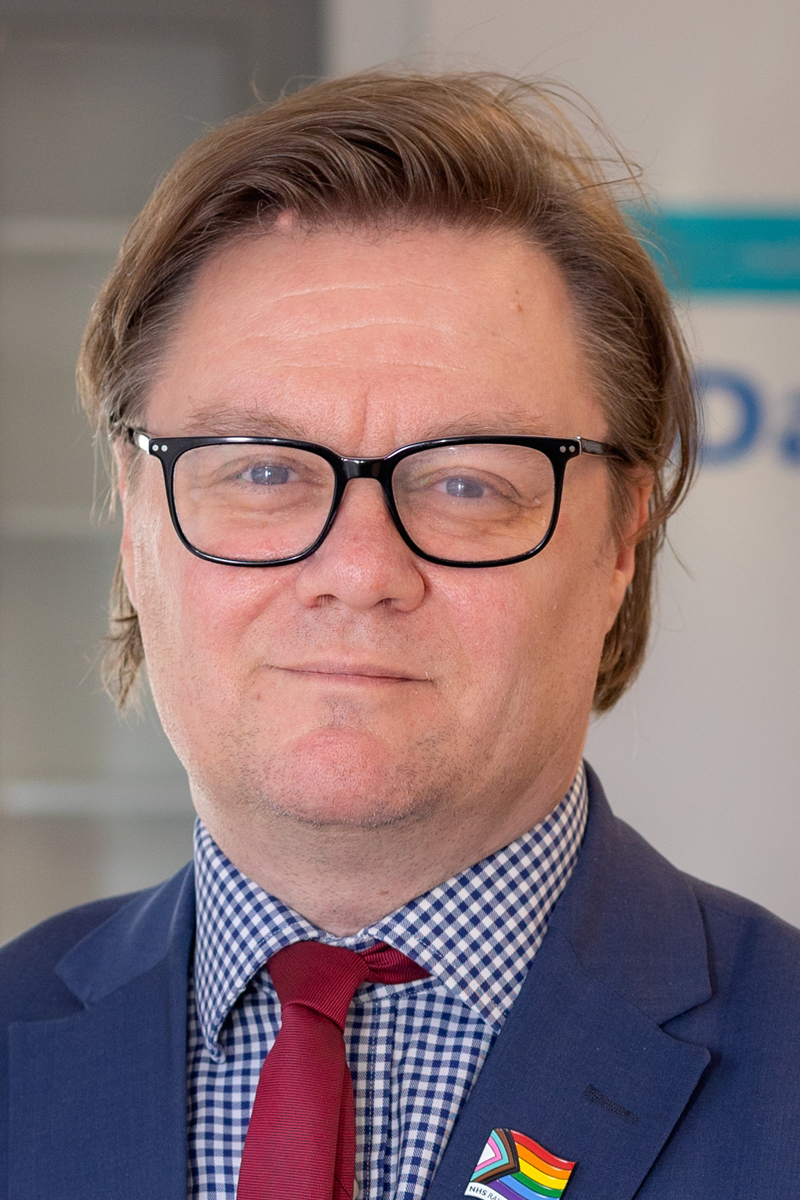
Page last reviewed: February 25, 2025
Next review due: February 25, 2026
Problem with this page?
Please tell us about any problems you have found with this web page.
Report a problem